#Cao Jun Hao
Photo


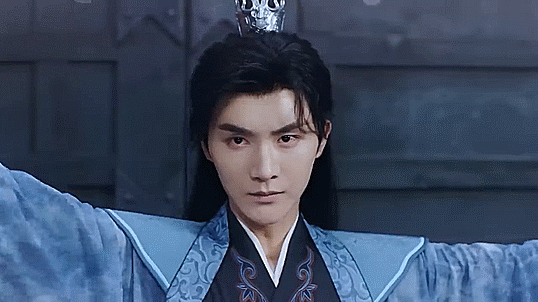

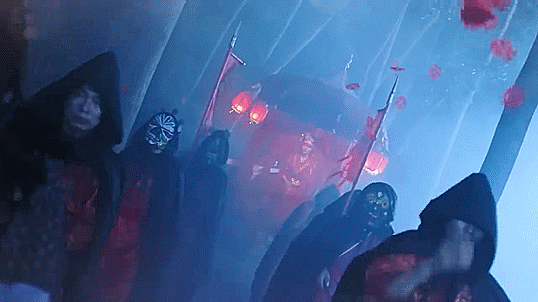
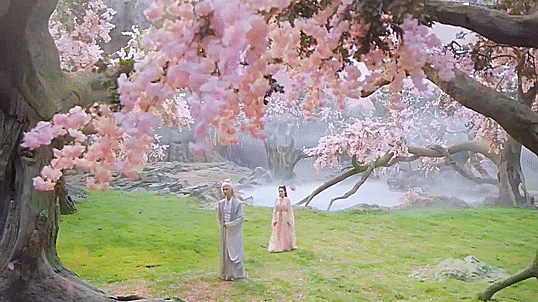
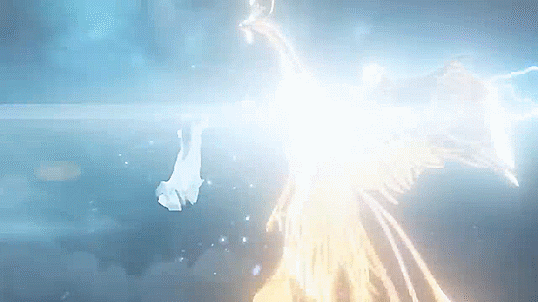
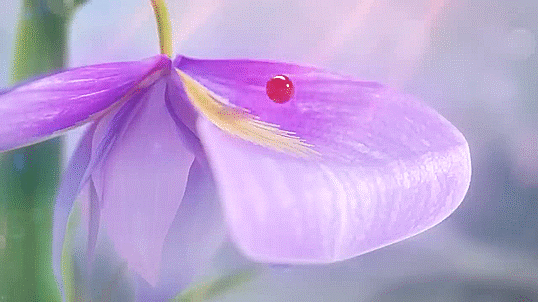
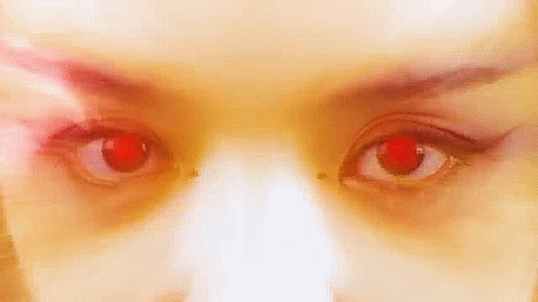
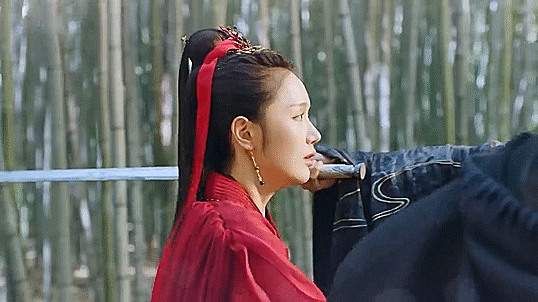
Cdrama: The Origin of Eternity (2022)
Gifs of Intro of cdrama “The Origin of Eternity”
[Multi-Sub] 《三生缘起是清欢/San Sheng Yuan Qi Shi Qing Huan 》 01: #杨泽#林妍柔#曹君豪#孙妍恩)
Watch this video on Youtube: https://www.youtube.com/watch?v=FIgHfYxjZRA
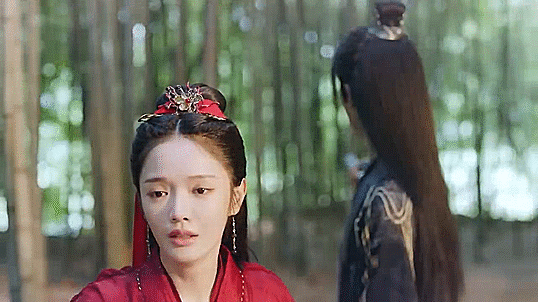

#The Origin of Eternity#三生缘起是清欢#三生緣起是清歡#San Sheng Yuan Qi Shi Qing Huan#2022#youtube#Short Length Series#Web Serie#WeTV#TencentVideo#cdrama#chinese drama#episode 1#1st episode#Yang Ze#Lin Yan Rou#Cao Jun Hao#Xu Shao Hang#Wang Hong Qian
19 notes
·
View notes
Text
Welcome to the 'Best Character with [X] surname' polls!
This is where I take several characters from different Chinese media (mostly cnovels and cdrama) and run a poll on which one is the 'best'. What does best mean? It's up to you! Whether you love them, are intrigued by their characters, love to hate them, or they're your '2 second blorbos whose personality you made up wholesale', these are all reasons for you to vote for your favs!
NB: the surnames are not exactly the same in all the cases, as often they will be a different character. I am, however, grouping them all together otherwise things got more complicated.
If you can't find a surname, it's because I couldn't find enough candidates (at least 3 from 3 distinct medias) to compete. Feel free to submit candidates!
I will be posting several polls at a time, so do come back and check this masterpost to remember which polls are ongoing, who the winners are, and who's coming up next!
Finished polls: Xing/Rong/Nan/Ren/Pan/Qu/Fu/Sui/Tan/You/Sima/Xuan/Chang/Xun/Shangguan/Jian/Qian/Shu/Xi/Yuwen/Cai/Sha/Yin/Ceng/Helian/Zeng/Lou/Mi/Ji/Ping/Tong/Tuoba/Ge/Murong/Hei/Niu/Tao/Si/Pang/Zi/Gongsun/Mao/Qing/Lian
Chi/Shan/Tian/Dao/Chao/Xin/Ran/Sang/Cang/Miao/Yao/Zang/Chong/Nangong/Kong/Hai/Deng/Kang/Jun/Chun/Gui/Peng/Gong/Dai/Bao/Bian/Leng/Xian/Kan/Hou/Shao/Kou/Zuo/Lai/Tie/Huan/Min/Xiong/Cen/Dou/Misc
There's only a certain number of hyperlinks that can be added per post, so the rest of the completed polls can now be found here
All the details of the individual polls under the readmore
An - posted 15/03/24 WINNER An Zhe
Bai - posted 28/02/24 WINNER Bai Fengxi
Baili - posted 22/03/24 WINNER Baili Qingmiao
Bao - posted 1/05/24 WINNER Bao Rongxing
Bi - posted 26/03/24 WINNER Bi Changfeng
Bian - posted 1/05/14 WINNER Bian Cheng
Cai - posted 7/04/24 WINNER Cai Quan
Cang - posted 23/04/24 WINNER Cang Jiumin
Cao - posted 8/02/24. WINNER - Cao Weining
Cen - posted 7/05/24 WINNEER Cen Xiao
Ceng - posted 8/04/24 WINNER Ceng Aiyu
Chang - posted 3/04/24 WINNER Chang Geng
Chao - posted 21/04/24 WINNER Chao Zi
Chen - posted 9/02/24 WINNER Chen Qingxu
Cheng - posted 10/03/24 WINNER Cheng Shaoshang
Chi - posted 19/04/24 WINNERS Chi Zhanggui and Chi Xiaochi
Chong - posted 25/04/24 WINNER Chong Ming
Chu - posted 12/03/24 WINNER Chu Wanning
Chun - posted 28/04/24 WINNER Chun Shen
Cui - posted 11/03/24 WINNER Madam Cui
Dai - posted 30/04/24 WINNER Dai Mubai
Dao - posted 20/04/24 WINNER Dao Mingsi
Deng - posted 27/04/24 WINNER Deng Kuan
Di - posted 16/02/24 WINNER Di Feisheng
Ding - posted 7/03/24 WINNER Ding Rong
Dong - posted 21/03/24 WINNER Dong Yi
Dongfang - posted 25/03/24 WINNER Dongfang Qingcang
Dou - posted 7/05/24 WINNER Dou Cheng
Du - posted 26/03/24 WINNER Du Cheng
Duan - posted 23/03/24 WINNER Duan Baiyue
Fan - posted 27/02/24 WINNER Fan Xian
Fang - posted 24/02/24 WINNER Fang Duobing
Fei - posted 20/03/24 WINNER Fei Du
Feng - posted 28/02/24 WINNER 'Other'
Fu - posted 31/03/24 WINNER Fu Yao
Gao - posted 13/02/24 WINNER Gao Xiaolian
Ge - posted 13/04/24 WINNER Ge Chen
Gong - posted 30/04/24 WINNER Gong Yu
Gongsun - posted 17/04/24 WINNER Gongsun Heng
Gu - posted 7/03/24 WINNER Gu Xiang
Guan - posted 17/03/24 WINNER Guan Hemeng
Gui - posted 29/04/24 WINNERS Gui Wen, Gui Yang, Gui Bai and 'Other'
Guo - posted 9/02/24 WINNER Guo Changcheng
Hai - posted 26/04/24 WINNER Hai Lanshi
Han - posted 17/03/24 WINNER Han Ying
Hao - posted 16/03/24 WINNER Hao Du
He - posted 22/03/24 WINNER He Xuan
Hei - posted 14/04/24 WINNER Hei Xiazi
Helian - posted 9/04/24 wINNER Helian Yi
Hong - posted 8/03/24 WINNER Hong Qigong
Hou - posted 3/05/24 WINNER Hou Bin
Hu - posted 6/03/24 WINNER Hu Tianying
Hua - posted 21/02/24 WINNER Hua Cheng
Huan - posted 6/05/24 WINNER Huan Xiaoyan
Huang - posted 20/03/24 WINNER Huang Shaotian
Huo - posted 25/02/24 WINNER Huo Xiuxiu
Ji - posted 11/04/24 WINNER Ji Xue
Jia - posted 18/03/24 WINNER Jia Kui
Jian - posted 4/04/24 WINNER Jian Buzhi
Jiang - posted 12/02/24 WINNER Jiang Cheng
Jiao - posted 27/03/24 WINNER Jiao Liqiao
Jin - posted 29/02/24 WINNER Jin Ling
Jing - posted 14/03/24 WINNER Jing Beiyuan
Jun - posted 28/04/24 WINNER 'Other"
Kan - posted 3/05/24 WINNER Kan Jian
Kang - posted 27/04/24 WINNER 'Other'
Kong - posted 26/04/24 WINNERS Kong Xiu and Alexis Kong
Kou - posted 4/05/24 WINNER Kou Baimen
Lai - posted 5/05/24 WINNER Lai Zhongshu
Lan - posted 23/02/24 WINNER Lan Wangji
Lei - posted 12/03/24 WINNER Lei Wujie
Leng - posted 2/05/24 WINNER Leng Yue
Li - posted 18/02/24 WINNER Li Lianhua
Lian - posted 18/04/24 WINNERS Lian Yufan and Lian Qiao
Liang - posted 13/03/24 WINNER 'Other'
Lin - posted 14/02/24 WINNER Lin Chen
Ling - posted 6/03/24 WINNER Ling Wen
Liu - posted 16/02/24 WINNER Liu Qingge
Long - posted 23/03/24 WINNER Long Zhi
Lou - posted 10/04/24 WINNER Lou Yao
Lu - posted 5/03/24 WINNER Lu Guang
Luo - posted 24/02/24 WINNER Luo Binghe
Ma - posted 13/03/24 WINNER Ma Xiuying
Mao - posted 17/04/24 WINNER Mao Panfeng
Mei - posted 14/02/24 WINNER Mei Changsu
Meng - posted 29/02/24 WINNER Meng Zhi
Mi - posted 10/04/24 WINER Mi Chong
Miao - posted 23/04/24 WINNER Miao Renfeng
Min - posted 6/05/24 WINNER Min Yunzhong
Ming - posted 26/02/24 WINNER Ming Yi
Misc - posted 7/05/24 WINNER Gongyi Xiao
Mo - posted 18/02/24 WINNER Mo Xuanyu
Mu - posted 22/02/24 WINNER Mu Nihuang
Murong - posted 13/04/24 WINNER Other
Nan - posted 29/03/24 WINNER Nan Feng
Nangong - posted 25/04/24 WINNER Nangong Si
Nie - posted 15/03/24 WINNER Nie Huaisang
Ning - posted 19/03/24 WINNER Ning Yingying
Niu - posted 14/04/24 WINNER Niu Chunmiao
Ouyang - posted 5/03/24 WINNER Ouyang Zizhen
Pan - posted 30/03/24 WINNER Pan Zi
Pang - posted 16/04/24 WINNER Pang Yizhi
Pei - posted 20/02/24 WINNER Pei Ming
Peng - posted 29/04/24 wINNER Peng Sanbian
Ping - posted 11/04/24 WINNER Ping An
Qi - posted 22/02/24 WINNER 'Other'
Qian - posted 5/04/24 WINNER Qian Jin
Qiao - posted 10/02/24 WINNER Qiao Wanmian
Qin - posted 16/03/24 WINNER Qin Banruo
Qing - posted 18/04/24 WINNER Qing Ge
Qiu - posted 25/03/24 WINNER Qiu Congxue
Qu - posted 30/03/24 WINNER Qu Lingfeng
Ran - posted 22/04/24 WINNERS Ran Lin and Ran Yun
Ren - posted 29/03/24 WINNER Ren Ruyi
Rong - posted 28/03/24 WINNER Rong Changqing
Ruan - posted 21/03/24 WINNER Ruan Nanzhu
Sang - posted 22/04/24 WINNER Sang Zan
Sha - posted 7/04/24 WINNER Sha Hualing
Shan - posted 19/04/24 WINNER Shan Gudao
Shang - posted 3/03/24 WINNER Shang Qinghua
Shangguan - posted 4/04/24 WINNER Shangguan Qin
Shao - posted 4/05/24 WINNER Shao Lin
Shen - posted 23/02/24 WINNER Shen Wei
Sheng - posted 4/03/24 WINNER Sheng Minglan
Sima - posted 2/04/24 WINNER Sima Yi
Shi - posted 8/03/24 WINNER Shi Qingxuan
Shu - posted 5/04/24 WINNER Shu Yanyan
Si - posted 15/04/24 WINNER Si Yilin
Song - posted 19/02/24 WINNER Song Lan
Su - posted 13/02/24 WINNER Su Zhe
Sun - posted 15/02/24 WINNER Sun Wukong
Sui - posted 31/03/24 WINNER Sui Zhou
Tan - posted 1/04/24 WINNER 'Other'
Tang - posted 12/02/24 WINNER Tang Fan
Tao - posted 15/04/24 WINNER Tao Ran
Tian - posted 20/04/24 WINNER Tian Qi
Tie - posted 5/05/24 WINNERS Tie Yinyi and Tie Miansheng
Tong - posted 12/04/24 WINNER Tong Lu
Tuoba - posted 12/04/24 WINNER Tuoba Yan
Wan - posted 24/03/24 WINNER Consort Wan
Wang - posted 26/02/24 WINNER Wang Pangzi
Wei - posted 8/02/24 WINNER Wei Wuxian
Wen - posted 2/03/24 WINNER Wen Kexing
Wu - posted 15/02/24 WINNER Wu Xie
Xi - posted 6/04/24 WINNER Xi Ping
Xia - posted 11/03/24 WINNER Xia Dong
Xian - posted 2/05/24 WINNERS Xian Ge and Xian Qing
Xiang - posted 19/03/24 WINNER Xiang Liu and Xiang Nanfang
Xiao - posted 20/02/24 WINNER Xiao Jingyan
Xie - posted 21/02/24 WINNER Xie Lian
Xin - posted 21/04/24 WINNER Xin Ziyuan
Xing - posted 28/03/24 WINNER Xing Zhi
Xiong - posted 7/05/24 WINNERS Xiong yipei and Xiong Chumo
Xu - posted 25/02/24 WINNER Xu Da
Xun - posted 3/04/24 WINNER Xun Feizhan
Xuan - posted 2/04/24 WINNER Xuan Shen'an | The Empress
Xue -posted 11/02/24 WINNER Xue Yang
Yan - posted 19/02/24 WINNER Yan Wushi
Yang - posted 3/03/24 WINNER Yang Wuxie
Yao - posted 24/04/24 WINNER Yao Zhen
Ye - posted 10/02/24 WINNER Ye Baiyi
Yi - posted 9/03/24 WINNER Yi Bichen
Yin - posted 8/04/24 WINNER Yin Yu
Ying - posted 17/02/24 WINNER Ying Hecong
You - posted 1/04/24 WINNER You Huo
Yu - posted 11/02/23 WINNER Yu Ziyuan
Yun - posted 1/03/24 WINNER Yun Biqiu
Yuan - posted 27/02/24 WINNER Yuan Boya
Yue - posted 4/03/24 WINNER Yue Qingyuan
Yuwen - posted 6/04/24 WINNER Yuwen Xuan
Zang - posted 24/02/24 WINNER Zang Ming
Zeng - posted 9/04/24 WINNER Zeng Xiangdong
Zhan - posted 10/03/24 WINNER Zhan Yunfei
Zhang - posted 17/02/24 WINNER Zhang Qiling
Zhao - posted 1/03/24 WINNER Zhao Yunlan
Zhen - posted 24/03/24 WINNER Zhen Ping
Zhi - posted 14/03/24 WINNER Zhi Xiu
Zhong - posted 27/03/24 WINNER Zhong Li
Zhou - posted 2/02/24 WINNER Zhou Zishu
Zhu - posted 9/03/24 Winner Zhu Hong
Zhuge - posted 18/03/24 WINNER Zhuge Liang
Zi - posted 16/04/24 WINNER 'Other'
Zuo - posted 5/05/24 WINNER Zuo Ran
43 notes
·
View notes
Note
a o e i i er ai ei ao ou an en ang eng ong i ia iao ie iu ian in iang ing iong u ua uo uai ui uan un uang ueng ü üe üan ün a o e er ai ao ou an en ang eng yi ya yao ye you yan yin yang ying yong wu wa wo wai wei wan wen wang weng yu yue yuan yun b ba bo bai bei bao ban ben bang beng bi biao bie bian bin bing bu p pa po pai pei pao pou pan pen pang peng pi piao pie pian pin ping pu m ma mo me mai mei mao mou man men mang meng mi miao mie miu mian min ming mu f fa fo fei fou fan fen fang feng fu d da de dai dei dao dou dan den dang deng dong di diao die diu dian ding du duo dui duan dun t ta te tai tei tao tou tan tang teng tong ti tiao tie tian ting tu tuo tui tuan tun n na ne nai nei nao nou nan nen nang neng nong ni niao nie niu nian nin niang ning nu nuo nuan nü nüe l la le lai lei lao lou lan lang leng long li lia liao lie liu lian lin liang ling lu luo luan lun lü lüe g ga ge gai gei gao gou gan gen gang geng gong gu gua guo guai gui guan gun guang k ka ke kai kei kao kou kan ken kang keng kong ku kua kuo kuai kui kuan kun kuang h ha he hai hei hao hou han hen hang heng hong hu hua huo huai hui huan hun huang z za ze zi zai zei zao zou zan zen zang zeng zong zu zuo zui zuan zun c ca ce ci cai cao cou can cen cang ceng cong cu cuo cui cuan cun s sa se si sai sao sou san sen sang seng song su suo sui suan sun zh zha zhe zhi zhai zhei zhao zhou zhan zhen zhang zheng zhong zhu zhua zhuo zhuai zhui zhuan zhun zhuang ch cha che chi chai chao chou chan chen chang cheng chong chu chua chuo chuai chui chuan chun chuang sh sha she shi shai shei shao shou shan shen shang sheng shu shua shuo shuai shui shuan shun shuang r re ri rao rou ran ren rang reng rong ru rua ruo rui ruan run j ji jia jiao jie jiu jian jin jiang jing jiong ju jue juan jun q qi qia qiao qie qiu qian qin qiang qing qiong qu que quan qun x xi xia xiao xie xiu xian xin xiang xing xiong xu xue xuan xun
NAKU 🫵
42 notes
·
View notes
Note
Ji ji fu ji ji
a o e i i er ai ei ao ou an en ang eng ong i ia iao ie iu ian in iang ing iong u ua uo uai ui uan un uang ueng ü üe üan ün a o e er ai ao ou an en ang eng yi ya yao ye you yan yin yang ying yong wu wa wo wai wei wan wen wang weng yu yue yuan yun b ba bo bai bei bao ban ben bang beng bi biao bie bian bin bing bu p pa po pai pei pao pou pan pen pang peng pi piao pie pian pin ping pu m ma mo me mai mei mao mou man men mang meng mi miao mie miu mian min ming mu f fa fo fei fou fan fen fang feng fu d da de dai dei dao dou dan den dang deng dong di diao die diu dian ding du duo dui duan dun t ta te tai tei tao tou tan tang teng tong ti tiao tie tian ting tu tuo tui tuan tun n na ne nai nei nao nou nan nen nang neng nong ni niao nie niu nian nin niang ning nu nuo nuan nü nüe l la le lai lei lao lou lan lang leng long li lia liao lie liu lian lin liang ling lu luo luan lun lü lüe g ga ge gai gei gao gou gan gen gang geng gong gu gua guo guai gui guan gun guang k ka ke kai kei kao kou kan ken kang keng kong ku kua kuo kuai kui kuan kun kuang h ha he hai hei hao hou han hen hang heng hong hu hua huo huai hui huan hun huang z za ze zi zai zei zao zou zan zen zang zeng zong zu zuo zui zuan zun c ca ce ci cai cao cou can cen cang ceng cong cu cuo cui cuan cun s sa se si sai sao sou san sen sang seng song su suo sui suan sun zh zha zhe zhi zhai zhei zhao zhou zhan zhen zhang zheng zhong zhu zhua zhuo zhuai zhui zhuan zhun zhuang ch cha che chi chai chao chou chan chen chang cheng chong chu chua chuo chuai chui chuan chun chuang sh sha she shi shai shei shao shou shan shen shang sheng shu shua shuo shuai shui shuan shun shuang r re ri rao rou ran ren rang reng rong ru rua ruo rui ruan run j ji jia jiao jie jiu jian jin jiang jing jiong ju jue juan jun q qi qia qiao qie qiu qian qin qiang qing qiong qu que quan qun x xi xia xiao xie xiu xian xin xiang xing xiong xu xue xuan xun
8 notes
·
View notes
Text
Ryu Number: The Sengoku Period/Romance of the Three Kingdoms characters of Warriors Orochi 4 Ultimate, Chapter 1
Sorted by level. As Oda Nobunaga has a Ryu Number of 1, all of the following characters have, at most, a Ryu Number of 2. Note that this series of lists is only noting individuals related to the Sengoku Period/Three Kingdoms Period. Errors are likely, because history is confusing and I am, frankly, below amateur-level here, so don't shout too loud.
Also you may notice some formatting is messed up. This is because sometimes when you enter-key-enter-key in the middle of a bullet list tumblr moves all the following formatting one character forward. This site is held together with toothpicks and chewing gum, I swear.
Chapter 1
Entering a Strange World
Honda Tadakatsu: (本多 忠勝) Born 1548. Daimyo (feudal lord) who was a vassal to the Tokugawa clan. One of Ieyasu Tokugawa’s Sixteen Heavenly Generals (but the adjective is really more like “godly”); one of his Four Heavenly Kings. Lived through the establishment of the Tokugawa shogunate that ruled Japan and died 1610.
Ii Naomasa: (井伊 直政) Born 1561. Daimyo. Led the Ii clan after Ii Naotora’s death and continued to serve the Tokugawa clan. One of Ieyasu Tokugawa’s Four Heavenly Kings. Lived through the establishment of the Tokugawa shogunate. Died 1602.
Ii Naotora: (井伊 直虎) Daimyo. Became head of the Ii clan on account of all the other choices being Not Very Good at rebelling against the Imagawa clan (who they were vassals of) and then dying because of it. What with all of that, she ended up adopting her second cousin, Ii Naomasa. After the Imagawa clan started losing power, she allied with the Tokugawa clan. She died in 1582 and was succeeded by Ii Naomasa.
Chen Gong: (陳宮, Chin Kyuu) Advisor to Lü Bu (a warlord of the Eastern Han Dynasty). Originally served Cao Cao (another warlord, whose work laid the foundation of the later state of Wei/Cao Wei) against Dong Zhuo (another warlord who essentially ruled Han behind a puppet emperor), but defected to Lü Bu in 194. During the Battle of Xiapi (Year 198ish—wherein warlord Liu Bei and warlord Cao Cao teamed up to defeat Lü Bu), Gao Shun and Chen Gong were betrayed by other generals of Lü Bu who handed them over to Cao Cao. Apparently Chen Gong’s post-capture pre-execution behavior had an impressive level of honor to it to the point that Cao Cao non-euphemistically took care of Chen Gong’s family after Chen Gong’s execution? In fiction (i.e. in Romance of the Three Kingdoms) his defection stems from Chen Gong’s high level of moral righteousness in contrast to Cao Cao’s lack of scruples after an incident where Cao Cao kills his uncle figure essentially Just To Be On The Safe Side.
Gao Shun: (高順, Kou Jun) A general of Lü Bu, known as his most able commander. Served loyally. Was betrayed by other generals of Lü Bu during the Battle of Xiapi along with Chen Gong and was subsequently executed.
Hao Meng: (郝萌, Kaku Bou). Served Lü Bu, but rebelled and led an assassination on Lü Bu’s HQ in 196. Gao Shun repelled the attack, and in the ensuing mess Hao Meng’s subordinate, Cao Xing, disarmed Hao Meng, by which I mean Cao Xing cut off Hao Meng’s arm. And then Gao Shun disheaded Hao Meng. In ficton (i.e. in Romance of the Three Kingdoms), none of that happens; he stays loyal and is captured by Zhang Fei (a general serving under Liu Bei) while off to request reinforcements from Yuan Shu (another warlord—look, there are a lot of warlords here) and is executed by Cao Cao.
Lü Lingqi: (呂玲綺, Ryo Reki). Not a historical or literary character—invented by Koei for Dynasty Warriors. Lü Bu did have a daughter, who he was gonna marry to warlord Yuan Shu (then he decided not to, then he decided he would after all but it was a bit too late to manage what with him under seige), but her name and fate have been lost to history.
Lü Bu: (呂布, Ryo Fu). Warlord. Served warlord Ding Yuan. Betrayed and killed Ding Yuan. Served warlord Dong Zhuo. Betrayed and killed warlord Dong Zhuo. Run off by Dong Zhuo’s followers. Served warlord Yuan Shu. Left warlord Yuan Shu. Served warlord Yuan Shao. Bit Yuan Shao’s feeding hand. Fled Yuan Shao’s assassins. Served warlords Zhang Yang and Zhang Miao. Took over Cao Cao’s Yan Province. Lost Yan Province back to Cao Cao. Fled Cao Cao’s army. Served Liu Bei. Betrayed Liu Bei (with Yuan Shu). Allied with Yuan Shu. Unallied with Yuan Shu. Allied with Cao Cao against Yuan Shu. Allied with Yuan Shu against Cao Cao. Captured by Cao Cao. Offered to serve Cao Cao. Cao Cao, having been blessed with the divine power of Pattern Recognition, executed Lü Bu instead, putting an end to that mess.
Wei Xu: (魏續, 魏続, Gi Zoku, Gi Shoku). An officer of Lü Bu. One of the officers who betrayed Gao Shun and Chen Gong. Subsequently served Cao Cao (i.e. the state of Wei/Cao Wei). In fiction (i.e. in Romance of the Three Kingdoms), he ends up fighting Yan Liang (a general under warlord Yuan Shao) to avenge the death of Song Xian (one of Wei Xu’s betrayal buddies), but also gets killed.
Zang Ba: (臧霸, 臧覇, Zou Ha). After the Yellow Turban Rebellion broke out in about 184, he served Tao Qian (The Inspector and later Governor of Xu Province), but later became a bandit leader at Mount Tai that sort of had his own autonomous rule. Allied with Lü Bu. After Lü Bu died, Zang Ba served under Cao Cao, then under Cao Cao’s successor Cao Pi, then under his successor Cao Rui.
Unfamiliar Enemies
Ding Feng: (丁奉, Tei Hou). Military General of the state of Wu/Eastern Wu (a vassal state nominally under Cao Wei that later proclaimed independence) under Sun Quan (the independence proclaimer) and his successor, Sun Liang. After regent Sun Chen deposed Sun Liang and replaced him with Sun Xiu (Sun Quan’s sixth son), Sun Xiu had Ding Feng’s help in assassinating Sun Chen because Sun Chen was getting all grabby with the state power. Sun Xiu was followed by Sun Hao, who was a jerk, and also Ding Feng also became a jerk, and Ding Feng died in 271. Ding Feng had a younger brother who was also named Ding Feng, but with “Feng” spelled with a different kanji and pronounced with a different pitch so I don’t see how you could possibly be confused. Oh, you’re reading this in English? Without diacritics? Why?
[Bu] Lianshi: ([步]練師, [歩]練師, [Ho] Renshi). Concubine of Sun Quan, posthumously honored as Empress; would have been Empress preposthumously except that the subjects preferred the other option. Died 238.
Lu Ji: (陸績, Riku Seki). Born 188. A scholar and military general in the state of Wu/Eastern Wu under Sun Quan. It’s said that when he was six, his father took him to visit Yuan Shu, and despite being treated as a guest, stole some of the mandarin oranges he and his father were treated to. When caught, he explained that he wanted to take them home to his mother. For this, he’s been enshrined as one of the Twenty-Four Filial Exemplars. Died 219.
Lu Kang: (陸抗, Riku Kou) Something something Mortal Kombat joke Military general. Born 226. The second son of Lu Xun (the third Imperial Chancellor of Wu). Served under Sun Quan, his successor, Sun Liang, his successor, Sun Xiu, and his successor (and the final Wu Emperor), Sun Hao. Sent Sun Hao missives imploring him to Stop Letting The Government Be Bad. Practiced detente across the Wu-Jin border (the state of Jin was what the state of Cao Wei became after it got couped). Died 274.
Lu Xun: (陸遜, Riku Son). General and politician. Started serving under Sun Quan and rose through the ranks. Scored a decisive victory against the Shu forces of Liu Bei in the Battle of Xiaoting in 222. He was drawn into the power struggle over succession between Sun He, Sun Quan’s third son and crown prince, and Sun Ba, his fourth son, and lost Sun Quan’s favor. Barely managed to hang on to his office but then basically immediately died in 245. Also neither of those two dudes became Emperor, so that’s very shaggy dog.
Shi Kuan: (施寬, 施寛, Shi Kan). A general of Wu. In 253, he was one of the folks sent to arrest Zhuge Rong, because Zhuge Rong wasn’t a very good general but managed to survive by hiding behind his brother, Zhuge Ke, who was the regent of young emperor Sun Liang, but was bad enough at dealing with Cao Wei that Sun Jun, a general distantly related to Sun Liang, decided to kill Zhuge Ke and took over regenting himself. This is confusing.
Sun Jun: (孫峻, Son Jun). Military general. Born 219. Distantly but not directly related to Sun Quan and Sun Liang, Sun Liang being the second Emperor of Wu that he served under. Killed Zhuge Ke and took over regenting Sun Liang. People didn’t like him very much, and also he was apparently a jerk, so he got all the assassination attempts after him. Ended up getting ill and dying 256.
Sun Quan: (孫權, 孫権, Son Ken) Born 182. Took over the Wu regime in 200 after its previous leader, his older brother, Sun Ce, was assassinated. Helped repel the numerically superior forces of Cao Cao at the Battle of Red Cliffs (208ish), putting an end to Cao Cao’s attempted reunification of Now His Territory with Not His Territory But Used To Be Part Of What Is Now His Territory Before It Was His Territory. After Cao Pi named himself Emperor, Sun Quan played vassal for a while, but ended up proclaiming Wu independence in 222 and himself Emperor of Wu in 229. Died 252 and was succeeded by his youngest son, Sun Liang.
Sun Shao: (孫韶, Son Shou, occasionally mistranslated Sun Hu) Born 188. A military general under Wu. Sun Ce (Sun Quan’s older brother, who ran the place before Sun Quan) granted him the name “Sun” but didn’t adopt him or anything. At the 224ish Incident at Guangling, where Cao Pi called off his attack of Wu’s Guangling Commandery right at the line and retreated, Sun Shao ordered his men go after them, but Cao Pi made it out. Died 241. In fiction, there’s more drama at Guangling—Sun Shao feels they ought to confront the enemy and makes such a big stink over it that his superior, Xu Sheng orders him executed, and Sun Quan (though he fully agrees with Xu Sheng) has to order Xu Sheng to call it off. Sun Shao then takes his forces and attacks anyway, but It’s Okay Because He’s Awesome and everybody claps.
Zhu Ran: (朱然, Shu Zen) Military general. Born 182. Childhood friend of Sun Quan, who surprisingly didn’t Do A Nepotism. When Wu general Lü Meng led an invasion into Liu Bei’s Jing Province in 219, Zhu Ran assisted in capturing Guan Yu (if you were gonna make a make a manga about Liu Bui booting up the state of Shu Han, Guan Yu would be part of the primary three-man squad; also Guan Yu is a god now). His crowning moment was in the Battle of Jiangling (223) when he defended the city against Cao Wei forces despite lacking the numbers in comparison. Died 249.
Malevolent Star
Naoe Kanetsugu: (直江 兼続) Samurai. Born 1559. Served Uesugi Kenshin (a daimyo who fought against Takeda Shingen and later Nobunaga Oda until his death by cancer; later the Uesugi clan surrendered to the Tokugawa clan). Died 1620.
Uesugi Kenshin: (上杉 謙信) One of the major daimyo of the Sengoku period. Born 1530. Originally named Nagao Kagetora (長尾 景虎). “Kenshin” was the name he took on after becoming a Zen Buddhist, and he was a notable devotee of Bishamonten, god of war. Many of his followers outright thought him to be an avatar of Bishamonten. The “Dragon of Echigo” who fought against his rival, Takeda Shingen, the “Tiger of Kai” (Echigo and Kai being Provinces). Despite being his enemy, Kenshin respected Shingen a great deal, sending him salt when Shingen’s supply had been cut off by another faction, and weeping upon hearing of Shingen’s death. He later broke with and opposed Oda Nobunaga, allying with Takeda Shigen’s heir, but died of cancer in 1578 before he was able to accomplish anything irreversible. There’s a theory that Uesugi Kenshin was actually a woman—it doesn’t really have any serious legs, and it’s not at all considered in academia, but it’s interesting, so I’ve elected to mention it. What I’m saying is that occasionally Fate/Grand Order genderswaps a character for a better reason than just “lol because.”
Hachisuka Koroku: (蜂須賀 小六; also called Hachisuka Masakatsu/蜂須賀 正勝) Born 1526. Originally served daimyo Saitō Dōsan. After the Saitō clan collapsed, he served under various Oda figures before ending up under Nobunaga. After Nobunaga died, he served Toyotomi Hideyoshi, Nobunaga’s successor. Died 1586.
Itō Nagahisa (伊東 長久) Born 1533. Served Oda Nobunaga, then Toyotomi Hideyoshi. Died 1585.
Kiso Yoshimasa: (木曾 義昌) Head of the Kiso clan. Born 1540. He originally served the Takeda clan, but once the Takeda clan began to decline, he turned to Oda Nobunaga. After Oda Nobunaga’s death, he served Tokugawa Ieyasu, and the Kiso clan fell under Tokugawa Ieyasu’s control. Thought to have died in 1595 or 1596.
Kuki Yoshitaka: (九鬼嘉隆) Leader of the Kuki clan. Born 1542. Served as a naval commander under Oda Nobunaga, and was instrumental in the naval battles against the Mōri clan. After Nobunaga’s death, Yoshitaka served under the Toyotomi clan. When the power struggles commenced between the factions siding with Toyotomi Hideyoshi’s intended heir, Toyotomi Hideyori, and Tokugawa Ieyasu, and Ishida Mitsunari led his 1600 uprising on the side the Toyotomi factions in the Battle of Sekigahara, Kuki Yoshitaka fell in with the Ishida Mitsunari’s Western Army, while Yoshitaka’s son sided with the opposing Eastern Army. The Eastern Army won. Yoshitaka’s son begged Ieyasu to spare Yoshitaka’s life on the basis of his previous services, and Ieyasu agreed, but Yoshitaka committed suicide before this news was able to reach him.
Nō: (濃, Nou, possibly No, often suffixed with -hime i.e. Lady) Wife of Oda Nobunaga (the guy known for kickstarting the unification of Japan). Daughter of daimyo Saitō Dōsan. Born 1535. Her marriage was political after Saitō Dōsan defeated Oda Nobunaga’s father. Little is actually known about her, not even her name; “Lady Nō” was just a title following the style at the time to reference that she was from Mino Province, which was also called Nō Province (she may have been called “Kichō” or “Kochō”). She disappears from historical record entirely a little after Saitō Dōsan’s death in 1556; we don’t even know when or how she died. Or if, for that matter.
Takenaka Shigenori: (竹中重矩) Born 1546. Initially a vassal of the Saitō clan; after they fell he followed the Oda clan. After the death of Oda Nobunaga in 1582, he was killed the same year fighting a small revolt.
Amano Kagetsura: (天野 景貫) Head of the Amano clan. Served the Imagawa clan; after their decline, he joined the Tokugawa clan, but then switched over to the Takeda clan. Once they fell, he went to the Hōjō clan. It’s unclear, but he may have been the same person as Amano Fujihide (天野 藤秀), rather than that person’s son.
Anbe Motozane (安部 元真; some sources use the characters 安倍 元真 and/or the pronunciation “Abe Motozane.”) Born 1513. Vassal of the Imagawa clan; after their fall he served Tokugawa Ieyasu. Died 1587.
Asahina Nobuoki: (朝比奈 信置) Born 1528. Vassal of the Imagawa clan, but later served the Takeda clan. After Takeda Katsuyori (Takeda Shingen’s heir) was eliminated, he was ordered to commit suicide by Oda Nobunaga in 1582.
Imagawa Yoshimoto: (今川 義元) Major daimyo of the Sengoku period. Born 1519. He was allied to the Takeda and Hōjō clans. En route to fight the capital of Tokugawa Ieyasu (who wasn’t called “Tokugawa Ieyasu” yet, but the last thing we need is for this to become more complicated than it already is), he was killed in 1560 in a surprise attack by Oda Nobunaga at the Battle of Okehazama.
Dong Min: (董旻, Tou Bin) Dong Zhuo’s younger brother (Dong Zhuo was the one who took over the capital and put a puppet emperor on the throne to rule behind him, remember). Got the benefits of nepotism. After Dong Zhuo was killed in 192, Dong Min was executed.
Dong Zhuo: (董卓, Tou Taku) Once upon a time there was an amazingly corrupt gang of eunuchs who collected state power behind the emperor’s back, and sometimes in front of him. When that emperor died, one of the new emperor’s regents decided it was time to clean house, which he did with the help of bunches of warlords and officials, including Dong Zhuo. The eunuchs objected by assassinating the regent. Loyal parties (and the warlords) objected back. This got Dong Zhuo into the picture, at which point he decided to try his own hand at the experience but without the being-a-eunuch part, replacing the new emperor with his own puppet emperor (Emperor Xian). Unfortunately he was a real big mean jerk, which pushed a lot of powers in the area to form a coalition against him. Eventually he fell out with his bodyguard, Lü Bu, who assassinated him in 192.
Guo Si: (郭汜, Kaku Shi) Born 146. Served under Dong Zhuo. After Dong Zhuo was killed, he and Li Jue (another dude under Dong Zhuo) managed to keep control of the capital and puppet Emperor Xian hostage, nominally as regents. Eventually the two of them couldn’t stand each other. He died in 197 when one of his subordinates, Wu Xi, assassinated him and went over to Li Jue’s side, so I guess Li Jue “won.”
Li Jue: (李傕, Ri Kaku) Served under Dong Zhuo. After Dong Zhuo was killed, he and Guo Si managed to take over Dong Zhuo’s affairs and all that other stuff I mentioned in Guo Si’s entry, but he wasn’t good at politics and it all became a big mess. Eventually killed in 198 by one of his subordinates, Duan Wei, to curry favor with Cao Cao.
Li Ru: (李儒, Ri Ju) Served under Dong Zhuo, then Li Jue. In Romance of the Three Kingdoms, he’s also Dong Zhuo’s son-in-law and advises him, and is executed after Dong Zhuo is killed.
Fa Zheng: (法正, Hou Sei Do you know the way to San Fa Zheng? I’ve been away so long, I may go wrong and lose my way) Advisor to warlord Liu Bei. Born 176. Originally a subordinate of the Liu Zhang, the governor of Yi Province, he defected to Liu Bui and was instrumental in Liu Bui’s takeover of Yi Province. His last major campaign was the 217-219 Hanzhong Campaign, which ended with Liu Bui taking control of Hanzhong Commandery from Cao Cao (in fiction, it’s Zhuge Liang who leads that). He died of illness in 220.
Guan Yinping (關銀屏, 関銀屏, Kan Ginhei). Guan Yu of Shu Han had a daughter. Sun Quan of Wu wanted to arranged a marriage between her and his son, Sun Deng, but Guan Yu refused. This is the extent of confirmed historicality when it comes to Guan Yu’s daughter; even the name “Yinping” comes afterward from historical folklore and whatnot.
Liu Bei: (劉備, Ryuu Bi) Born 161. Warlord who become the first Emperor of Shu Han. Did a lot of allying and betraying before he was able to hang on tight to his own territory. It was after helping defeat Cao Cao at the Battle of Red Cliffs in 208 that he was able to control Jing Province and later Yi Province (the latter was where he met Fa Zheng). After this, Lü Meng under Sun Quan invaded Jing Province, resulting in its loss to Liu Bei and the death of Guan Yu; Liu Bei then named himself Emperor of Shu Han and sought revenge, he was never able to see success and was forced to give up. His heir was Liu Shan.
Ma Chao (馬超, Ba Chou) Born 176. First son of Ma Teng, a warlord of Liang Province. Rebelled along with a bunch of other warlords against the Han central government (and Cao Cao). It went poorly. Eventually he fell in under warlord Liu Bei. Died 222. Romance of the Three Kingdoms polishes up his image considerably: In fiction, he rebelled as revenge for his family being executed by Cao Cao, while historically his family was executed because of the rebellion; he gets Cool Fight Scenes that never actually happened; he’s one of the Five Tiger Generals of Shu, etc.
1 note
·
View note
Text
Nhu Cầu Dinh Dưỡng & Năng Lượng Thiết Yếu Của Cơ Thể - Omega 3 Giá Tốt Nhất
đồ ăn được mang lại nguồn năng lượng đến cơ thể bên dưới dạng gluxit, lipit, protein , từ rượu và dạng thức uống xuất hiện rượu. Người ta thấy rằng sự thiếu hụt hoặc thừa đông đảo dưỡng chất trên so với lời xin đều mang đến tổn bất lợi Cho tới tình trạng sức khỏe và hoàn toàn có thể mang tới bệnh tật. Thức ăn còn được cung cấp Nhiều axit min, axit béo, Vi-Ta-Min và hàm vị cấp bách mang đến cơ thể tăng trưởng và duy trì: các hoạt động vui chơi của tế bào và tổ chức. Con người còn biết rằng trong thức ăn Không chỉ có những dưỡng chất nhưng còn có thêm hàm vị tạo nên sắc màu, vị hao hao Rất có thể xuất hiện lượng chất ô nhiễm đối với thể xác. Bởi thế để tạo ra dở cơm thích hợp, dễ chịu và ngon muốn hiểu rõ về đủ dinh dưỡng và an toàn thực phẩm, nhân viên sửa chữa nấu, nấu nướng...
I. NĂNG LƯỢNG
1. Tiêu hao năng lực.
Trong thời gian sinh sống của mình, thể chất người luôn bắt buộc thay cho cũ phát triển và vận động Nhiều hiện tượng sinh hóa, tổ hợp xây cất đa số tế bào, tổ chức thế hệ nhu muốn được mang lại năng lượng. Nguồn năng lượng này là từ thực phẩm bên dưới dạng protein, lipit, gluxit.
Các nhà khoa học đang xác lập và thể hiện bên năng lượng bởi đơn VỊ KILOCALO ( VIẾT TẮT LÀ KCAL ). ĐÓ là nhiệt lượng cần thiết để mang 1 lít nước kể từ 150C. Hiện tại còn một bên năng lượng được sử dụng là Jun, Công ty này dựa và cách tính cơ năng, một Jun được tính là lực 1(N) chuyển một vật xuất hiện trọng lượng 1 kg dời một khoảng vắng 1m.
Ðể xác định năng lượng cung cấp kể từ thực phẩm người ta sử dụng Bom calori (Hình 1).
Giai đoạn phản xạ sinh sức nóng từ thức ăn trong Bom calori được diễn đạt dưới công thức tương tác sau:
Gluxit, protein, lipit + O2 = Nhiệt năng + H2O + CO2
Quá trình này cũng tương tự động vào thể chất người, quy trình kia khá giống như trong cơ và gan. Trong thân thể người năng lực đưa đến kể từ cùng một lượng thực phẩm so với trong BOM CALORI thì thấp thêm. Do trong khung người một lượng đồ ăn ko được tiêu hóa thu nạp không còn thải ra theo phân, Vì Sao thứ nhì là trong thể chất một số chất không được đốt cháy hoàn toàn và thải ra theo nước đái như protein, urê, axit uric...
Giá trị sinh sức nóng của các chất
Chất (g)
Nguồn năng lượng sinh ra
Ở Bom calori
Ở CƠ THỂ
Kcalo
KJ
5.65
4.Một
17
Lipit
9.45
9
38
Rượu
7.1
7
29
Xác lập năng lượng tiêu thụ của thể xác có nhì phương pháp trực tiếp và loại gián tiếp:
youtube
- Phương pháp thẳng tương tự Cách xác lập tích điện của thực phẩm sống BOM CALORI. Ở phương pháp này tích điện tiêu tốn tương đương với tích điện làm nhiệt độ độ nước tăng thêm, thường xuyên nhiệt độ lượng đo được kết phù hợp với việc đo lượng O2 luyện tập và CO2 sinh ra trong thời gian buổi giao lưu của thân thể & nương tựa thương số thở phụ thuộc vào chất được đốt cháy
Thường thực đơn ăn nói tóm lại là lếu láo hợp của cả 3 hóa học vì vậy thương số thở Thông thường tính tầm: 0,8-0,85.
- Cách thức con gián tiếp xác định tiêu thụ nguồn năng lượng qua lượng oxy thân thể Dùng thử. Khi đó tính nguồn năng lượng được sinh ra liên quan với một lít O2 sử dụng là: 4,82 Kcal.
2. Chuyển hóa Trung tâm.
Chuyển hóa hạ tầng là nguồn năng lượng thể xác tiêu tốn vào trường hợp ngủ nghơi này đó là năng lực thiết tha nhằm giữ lại đông đảo chức vụ sống của thân thể như tuần hoàn, hô hấp, bài trừ, hấp thụ, giữ lại tính ổn định định Hầu như thành phần của dịch thể bên trong và bên ngoài tế bào.
Người ta biết rằng hoạt động vui chơi của gan cần dùng 27% năng lượng của chuyển hoá Thương hiệu, não 19%, tim%, thận 10%, cơ 18%, và những đơn vị giữ lại chỉ 18%. Nhiều nguyên tố liên quan đến nơi mua omega 3 uy tín đưa hóa hạ tầng: Hiện tượng tập hợp thần kinh trung ương, sức mạnh kinh doanh phần đông server nội tiết và men. Chức vụ một số VPS nội tiết làm đưa hóa nền tang tăng (ví dụ giáp trạng) trong khi đó khởi động một số tuyến nốt tiết khác thực hiện tránh chuyển hóa nền tang (ví dụ tuyến yên). Chuyển hóa nới bắt đầu của trẻ em cao hơn sinh sống người lớn tuổi, TUỔI CÀNG NHỎ CHUYỂN HOÁ CƠ SỞ CÀNG CAO. Ở người trung niên và ngư��i già gửi hoá nền tảng thấp dần cùng với hiện tượng lạ giảm khối nac và tăng khối mỡ. trong người trưởng thành, năng lực mang đến đưa hóa nền móng vào mức 1kcal/kg cân nặng/1 giờ.
trong người phụ nữ với thai đưa hóa tăng vào giai đoạn thai nghén, và tối đa ở những tháng cuối, trung bình ở PHỤ NỮ Mang bầu gửi hóa Cửa hàng tăng 20%. Khi một người bị thiếu hụt dưỡng chất thường bị đói, gửi hóa Thương hiệu cũng hạn chế, hiện tượng lạ đó sẽ mất đi biết bao giờ cơ thề được đáp ứng đủ ý định nguồn năng lượng. Cấu tạo khung hình của một người dân có can hệ đến gửi hóa nền tảng, so sánh những người có cùng trọng lượng, người có khối mỡ Nhiều gửi hóa Cửa hàng thấp hơn đối với người có khối nạc Nhiều.
Nhiệt độ cơ thể tương quan với đưa hóa Cơ sở, Khi thân thể bị sốt tạo thêm 10C thì gửi hóa nền móng tăng 7%. .Nhiệt độ môi trường xung quanh cũng xuất hiện shop tới đưa hóa nới bắt đầu song ko lớn lắm, thường Khi nhiệt độ độ Thị trường tăng thì đưa hóa nền tảng cũng tăng lên và trái lại nhiệt độ độ môi trường thiên nhiên giam gửi hóa Cơ sở cũng hạn chế.
Sau đó 1 dở cơm chuyển hóa hạ tầng tăng thêm kể từ 5% tới 30% , người ta gọi này là tác dụng động lực đặc hiệu , trong khi đó đạm tăng tới 40%, chất to 14%, gluxit 6%.
Thậm chí tính gửi hóa nền tang theo bảng sau:
Bảng 1: Công thức tính gửi hóa nền móng theo khối lượng ( w ).
Nhóm tuổi
Chuyển hoá cở sở (Kcalo/ ngày)
(Năm)
0-3
60,9w-54
61,0w-51
3-10
22,7w-494
22,5w+499
10-18
17,5w+651
12,2w+746
18-30
15,3w+679
14,7w+946
30-60
11,6w+879
8,7w+892
Trên 60
13,5w+547
10,5w+596
3. Cần lao thể lực.
Ngoài phần tích điện tiêu hao sở dĩ duy trì cụm buổi giao lưu của thể chất, lao lực thể lực càng nặng thì tiêu tốn phổ biến năng lực. Tích điện thêm vô ngoài đưa hóa cơ bạn dạng tùy theo cường độ làm việc, thời gian lao lực. Từ lâu người ta cũng biết những khác nhau về tích điện tiêu thụ mà thậm chí sự khác biệt khá lớn Ngay cả trường hợp có và điều kiện sinh sống và công việc đấy ỉa những nguyên tố thể trọng, tuổi, môi trường xung quanh và hương vị riêng sự ranh ma và thành thục làm việc.
Nếu chế độ dinh dưỡng đảm bảo kém nấc tiêu hao năng rất đông người ta tiếp tục kéo dãn thời gian nghỉ, hoặc giảm quyện lực cần lao dẫn Cho tới năng suất lao động thuyên giảm.
Nương tựa tính chất, độ mạnh lao lực thể lực người ta xếp một số loại nghề nghiệp và công việc thành group như:
- Cần lao nhẹ nhàng: Hướng Dẫn Viên hành chính, đều nghề đầu óc, nghề tự tại, nội trợ, nghề giáo.
- Làm việc vừa phải: Người công nhân kiến thiết , nông dân, nghề cá, quân nhân, SV.
- Cần lao nặng trĩu. Một trong những nghề nông nghiệp, công nhân lực nghiệp nặng nề, nghề mỏ, vận Khuyến khích Thể Thao, quân nhân thời kỳ tập tành.
- Cần lao khác biệt nhất: Nghề rừng, nghề rèn.
Cách phân loại này chỉ mất tính Cách chỉ dẫn , trong cùng một loại nghề nghiệp, tiêu thụ nguồn năng lượng thay đổi Nhiều tùy từng đặc thù công tác.
4. Tính sự đòi hỏi tích điện cả ngày.
Ðể xác lập nhu yếu nguồn năng lượng suốt ngày, người ta cần biết sự đòi hỏi đến gửi hóa Cửa hàng và thời gian, đặc thù các hoạt động sinh hoạt thể lực Hàng ngày. Theo TỔ CHỨC Y tế thế giới (1985) thậm chí tính năng lượng yêu cầu tầm xuyên suốt ngày cho đưa hóa nền tang theo nhiều thông số sau:
Bảng 2: Hệ số tính nhu yếu năng lực suốt cả ngày của người trưởng thành và cứng cáp theo chuyển hóa Thương hiệu.
Làm việc nhẹ nhàng
1,55
1,56
Lao lực vừa
1,78
1,61
Lao động nặng
2,10
1,82
Ví dụ: nhu yếu tích điện của tập thể nhóm lao động nam khoảng tuổi 18-30, cân nặng tầm 50 kilogam , loại cần lao vừa như sau:
- Tra bảng 1 ta tính được nhu cầu mang đến đưa hóa Trung tâm là:
( 15,3 x 50 ) + 679 = 1444 Calo.
Tra bảng 2 ta tìm kiếm ra thông số tương ứng mang lại làm việc vừa sinh sống Nam LÀ 1,78 VÀ TÍNH được nhu yếu xuyên suốt ngày như sau:
1444 Calo x 1,78 - 2570 Calo.
5. DUY TRÌ CÂN NẶNG NÊN CÓ:
trong trẻ em, lên cân là 1 trong trình bày của PHÁT TRIỂN BÌNH THƯỜNG VÀ DINH DƯỠNG HỢP LÝ. Người ta thấy rằng sống lâu tầm của những người Khủng thấp thêm và tỷ trọng mắc Hầu như bệnh về tim mạch tốt hơn người đơn giản. sống người trưởng thành quá 25 tuổi CÂN NẶNG THƯỜNG DUY TRÌ Ở mức ổn định quá béo thường quá gầy đều ko có lợi nếu như với y tế. Rất có CÔNG THỨC để tính khối lượng "nên có" hoặc gần như chỉ số tương. ứng. Một chỉ số quan trọng cực kì được TỔ CHỨC Y tế nhân loại (1985) khuyến nghị tham chiếu là chỉ số khối thể chất (Body MASS INDEX, BMI ), TRƯỚC ÐÂY CÒN GỌI LÀ CHỈ SỐ QUETELET:
Trong số đó : W: Trọng lượng tính theo Kg
H: Chiều cao tính theo (m)
Theo TỔ CHỨC Y TẾ THẾ GIỚI, CHỈ SỐ BMI Ở người tầm thường nên năm trong khoảng 18,5-25 trong CẢ Nam VÀ NỮ. THEO KẾT QUẢ NGHIÊN CỨU CỦA VIỆN DINH DƯỠNG, CHỈ SỐ BMI Ở người Nước Ta 26-40 tuổi : Nam là 19,72 + 2,81, Nữ 19,75 + 3,41
II. NHU CẦU CÁC CHẤT DINH DƯỠNG CỦA CƠ THỂ
A . Lời xin cụm dưỡng chất đáp ứng nguồn năng lượng
1. Thị hiếu Protein.
Trong thời gian sống, thường xuyên và liên tục ra mắt thời kỳ phân hủy và sinh tổ hợp hàm lượng, thời gian thay cũ nâng cấp về thành phần tế bào. Ðể ổn định quy trình tiêu hủy và đổi mới hằng ngày cần thiết thêm hóa học protein vào máu. PROTEIN sinh sống thể xác người ta chỉ Rất có thể tạo thành từ protein của thức ăn, hóa học protein chẳng thể tạo nên thành kể từ hóa học lipit và gluxit.
Lời xin protein hằng ngày của khung người là bao nhiêu ? ý hỏi đó vẫn đang là chủ đề cho những Bàn bạc và nghiên cứu và thử nghiệm sôi sục. Giữa thế kỷ 19 Voi, Rubner và Atwater trải qua nhiều thể nghiệm phân tích thống kê tình hình ăn của đa số nước tiến tới cuối cùng là vừa phải mỗi đối tượng Hàng ngày cần 118g protein.
Chittenden trên nới bắt đầu thí nghiệm cân đối ni tơ tiến tới Tóm lại là hằng ngày mọi cá nhân Chỉ Cần 55-60g Protein Tức là chỉ đơn giản là 1/2 nhu muốn do Voi khuyến nghị.
Bản sắc của lời xin protein: Lời xin protein mang đến d(ly trì thời kỳ thay cho cũ đổi mới, bù
0 notes
Text
i like him cql edition✨
i like them, like them a lot
le watermark is me twt
#mdzs cast#wang yibo#xiao zhan#guo cheng#liu hai kuan#zhu zan jin#wang zhou cheng#wang yizhou#wang hao xuan#he peng#song jiyang#ji li#zheng fanxing#li bowen#cao yuchen#cao jun xiang#mdzs#yu bin
112 notes
·
View notes
Note
Did you hear about Studio Wabi Sabi's Chinese BL?? Subs are either Chinese or Thai so I understood very little but I'm excited to see an uncensored Chinese BL!
https://youtu.be/qEZx8J_5h_M
I had not. I am both very intrigued and totally terrified. I mean what if it's BL that starts an international incident and WW3? I mean, it'd be oddly validating for us but also... eeeekkkkk.

I should note that during my latest lockdown investigations I upended 2018's River Knows Fish Heart (on Gaga) which is basically uncensored old school BL from China (but made, shockingly, post 2017). However, it's pretty poorly acted and the ending is... odd. I enjoyed it though. It's like a Thai BL met a yaoi novel and snuck into China. If you like the old fashioned stuff, give it a watch.

You Light Up My Life Again
Status: no MDL listing as yet, colab project between Thailand's Studio Wabi Sabi and Mainland China. Directed by New Siwaj. For WeTV in Thailand and Tencent in China. Filming at Dhurakij Pundit University known for having more students from China than any other Thai uni. Mandarin language. (Promo Trailer)
Since it's airing on main channel Tencent in China, then in China it will not be BL but a bromance. Is it possible there will be an uncensored version in Thailand? Who knows. That depends on funding, I suspect. Not just whose money, but how much. Recuts and alt versions are costly. Also, as this is intended for a Chinese market if it does go gay it will not end happily. Wabi Sabi has done that before. So don’t trust this one to HEA.
Type: University set, hot foreign exchange students, bromance (not BL), self actualization coming of age narrative
Wait I’ve seen them to BL before? Chen Wen played Yang Meng, the pretty fae bestie in Addicted Heroin (2016). Thai actors include Mark Siwat (Bite Me) who plays a het side dish, and Wabi Sabi stable actors: Boun (UWMA) and Yacht (LBC).
Plot: Qin Jun Hao (Cao En Qi), born into a wealthy family with a passion for basketball, breaks up with his GF, goes Thailand to pursue his dreams. He rooms with Yuan Zhiming (Chen Wen), a poor kid determined to work hard with a scholarship to study at the Faculty of Music. They grow close. Their friends include handsome senior "Charlie" (Mark), prankster "Da Ya" (Hu Hao Fan) and the basketball player "De De" (Boun).
More Deets: It is about a Buddy & Budder pair system that lasts for a semester. Budder has to take care of Buddy. (For the Americans out there it’s like secret Santa but for services.) The Budder knows the identity of their Buddy, but the Buddy will not be aware of the Budder’s identity. If Buddy guesses the identity of Budder correctly, the Buddy will not need to write a report and get full marks and have the right to ask the Budder to take care of them until graduation.
Tropes already in play: the little yellow backpack (it’s New after all), OMG they were roommates, jock/nerd, piggyback, beach frolic, sing your feelings, freshy games, possible love triangle.
I have a list of BLs that are cross country projects here:
BL Without Borders
#chinese bl#thai bl#bromance#censored bl#upcoming bl#studio wabi sabi#bl without borders#mark siwat#Boun Noppanut#cross country colab#addicted web series#River Knows Fish Heart
37 notes
·
View notes
Text
‘The Untamed’ Actors: Oldest to Youngest
Because I think the most shocking part of the show for many of us are the actors real ages XD
*List omits the ‘adult-ier adults’
**Americans: I did the birthdays Year.Month.Day, I know it’s not our normal system so just wanted to warn you.
*** Ages as of 2020.01.31
30
Zhang Jing Tong (Madam Yu; 1989.04.24)
He Peng (Wen Chao; 1989.08.12)
Wang YiZhou (Nie Mingjue; 1989.12.18)
29
Xuan Lu (Jiang Yanli; 1991.01.15)
28
Feng Cong (Su She; 1991.03.17)
Yu Bin (Wen Ning; 1991.06.03)
Xiao Zhan (Wei Wuxian; 1991.10.05)
27
Li Bowen (Song Lan; 1992.12.24)
26
Cao Yu Chen (Jin Zixuan; 1993.03.15)
25
Liu Hai Kuan (Lan Xichen; 1994.08.03)
Guo Cheng (Lan Jingyi; 1994.08.18)
24
Jin Lu Ying (Qin Su; 1995.06.21)
Zhu Zanjin (Meng Yao/Jin Guangyao; 1995.09.16)
Wang Hao Xuan (Xue Yang; 1995.11.02)
Meng ZiYi (Wen Qing; 1995.12.05)
23
Wang Zhuo Cheng (Jiang Cheng; 1996.11.19)
22
Ji Li (Nie Huaisang; 1997.03.16)
Qi Pei Xin (Jin Ling; 1997.06.02)
Wang Yibo (Lan Wangji; 1997.08.05)
Chen Zhuo Xuan (A-Qing of the Yi City Arc; 1997.08.13)
Song Jiyang (Xiao Xingchen; 1998.01.26)
21
Zheng Fanxing (Lan Sizhui/Adult Wen Yuan; 1998.09.05)
20
Cao Jun Xiang (Ouyang Zizhen; 1999.02.21)
**Updated via @zokso @wirwerdensiegen and @estefanirose
#mine#the untamed#cast#he peng#wen chao#wang yizhou#nie mingjue#xuan lu#jiang yanli#feng cong#su she#yu bin#wen ning#xiao zhan#wei wuxian#li bowen#song lan#cao yu chen#jin zixuan#liu haikuan#liu hai kuan#lan xichen#guo cheng#lan jingyi#jin lu ying#qin su#wang hao xuan#xue yang#zhu zanjin#meng yao
3K notes
·
View notes
Text
Okay, so we never got the end I guess. But here’s to iconic moments from QCYN3 that really stayed with me, as in, the ones that I will think about again and again :
Li Junhao in the press conference “Involution is...is...it is eh? ?? wait a second .....?! ” *legs keep shaking*
Jony’s “Spiderman spiderman, fsht fsht fsht” audition
Wu Le Bu Zuo! all of it.
First stage evaluation: Li Junhao messes up his lyrics and goes “OH! NOooo” (literally)
Whatever that thing was that Niu Zaizai and Xu Xinchi did for “Bu De Bu Ai” and Pan Weibo being like...u know what. go for it. take that song as yours. do what makes you happy. even if it’s fucking weird
Sun Yihang’s breakdown backstage after “Sunshine Rainbow White Pony” while Lian Huaiwei, Yan Xi and Cao Yu proceed to film him and laugh
Impossible to choose one pair only but basically, when they had to pick partners with whom to learn the Theme song (aka everyone gets their love letters read in public)
That one sequence showing the trainees practicing the Theme Song, you know, the one where you see them lose their minds one by one
Niu ZaiZai’s theme song evaluation
Xu Ziwei’s theme song evaluation (“Journey to the West” plays as BGM)
Niu ZaiZai’s first round acceptance speech - aka “what is emotional stability”
Luo Yizhou to Tang Jiuzhou: “Then if I changed, would you pick me...?”
Aikelili’s trash talk to Wei Xingchen. (I think about this one so much you have no idea)
Li Rong Hao: “Xu Ziwei’s dancing is just right. Nothing more, nothing less would incite our explosions of laughter”.
ok a heavy one: Liu Jun’s dance audition. Because it really deserves it.
not heavy: Liu Jun’s rooftop video: “WEEEEEEEIIIII” *voice breaks multiple times*
Chang Huasen demonstrates his special talent by PCB welding through an entire night
Deng Xiaoci and Li Junhao acting Tiny Times: “I cAN TAkE cARE of yOU!?”
Aikelili and Niu ZaiZai’s Oscar-worthy performance of “Huan Zhu Gege”.
Li Junhao and Sun Yihang laugh so much at Luo Yizhou that they hit their heads against each other and go to the hospital
Shi Qi: “STAND BACK. STAAND. BAAACCCKKKKKKK.” Tang Jiuzhou: ?????????? ???
Chen Junhao: “Yezzirrr!”
Thanks for the laughter, QCYN3.
#qcyn3#ywy3#youth with you 3#tang jiuzhou#niu zaizai#aikelili#xu ziwei#chang huasen#liu jun#li junhao#deng xiaoci#luo yizhou#li ronghao#qcyn3 rly did pack a punch in the laughter area#I will in particular look back at eps 7-14 perhaps even 7-16 with fondness
23 notes
·
View notes
Note
Is there anyone who's playable in Dynasty Warriors now you think spouse (By spouse I mean being married to someone) should also be playable who is not? Also same question with children who should be playable?And with that I think I want out a family.
Of the Cao, I think Cao Cao’s wife Lady Bian (mother of Pi, Zhi, and Zhang) would be an excellent addition, particularly if she’s the one responsible for Cao Cao’s more merciful decisions in the narrative (like sparing former enemy officers such as Zhang Liao and Jia Xu). I think his daughter Cao Jie would be a solid character, being Han’s last empress and known for a fiery display of defiance against her brother. I also think there’s to be gained by including the martial Cao Zhang, and perhaps even the drunken poet Cao Zhi, although I’ve never been fond of the latter.
I also think that Cao Rui (son of Cao Pi and Madam Zhen) is a natural choice, given that an appreciable portion of the narrative takes place during his reign (namely Zhuge Liang’s various campaigns).
Xun Yu’s son Xun Yi was a major figure in Western Jin. He was a longtime friend of the Sima brothers, a close confidant who helped orchestrate their rise to power and reaped the rewards of doing so. Intelligent but corrupt, he’d be a fun contrast to his father.
Sun Jian’s wife, Lady Wu, could also be a fantastic inclusion. She was a strong-willed and level-headed woman who provided sound advice to her husband and suns prior to her death. She could be a great contrast to her fiery husband and eldest son.
Sun Luban, the daughter of Bu Lianshi and Sun Quan, was an extremely influential figure in Wu during the final years of Sun Quan’s reign, and during the time of the three regents (Zhuge Ke, Sun Jun, and Sun Chen). Her sister Sun Luyu might also be a worthwhile addition, as the two fought for years until Luban arranged for her sister’s death.
Lu Xun’s sun Lu Kang was a talented official who was arguably the paramount figure of Wu’s final years, though I think that if the story isn’t extended until Jin’s conquest of Wu he loses a lot of his relevance.
The same can be said of Zhu Ran’s son Shi Ji, one of Wu’s leading figures during the reigns of Sun Xiu and Sun Hao.
Liu Bei’s wife Lady Mi and concubine Lady Gan (Liu Shan’s mother) could both be interesting inclusions but it would require the story to spend more time on Liu Bei’s early years than DW usually wants to. There’s potential there but I doubt it’d be realized.
Zhuge Zhan, son of Zhuge Liang and presumably Lady Huang (Yueying) seems like a natural choice. He was one of Shu’s leading figures during its final years and famous led the final failed defense against Deng Ai at Mianzhu. I’m surprised he’s not in these games already.
I personally don’t have much faith in this, but theoretically Guan Yu’s wife (named Hu Jinding in Hua Guan Suo Zhuan and that seems as good a name as any) could add a lot to their family dynamic. If Guan Yu has three sons and a daughter, adding his wife is logical.
Sima Shi had two wives who could be interesting although it depends on the narrative. His first wife Xiahou Hui (who he allegedly murdered) was the daughter of Xiahou Shang and sister of Xiahou Xuan, and I’d be happy to see all three of them given the spotlight. His third wife Yang Huiyu (sister of Yang Hu), was an influential woman much loved by his family. Sima Yan even honored her as though she was his own mother. Aside from her relationship with Sima Shi (and potentially Yang Hu) she’d presumably bring a new dynamic to Wang Yuanji as well, and she could really use it.
As for the Others, I think Yuan Shao has potential. His wife Lady Liu was a very sinister woman, one who had several of his concubines murdered and desecrated after his death to prevent them from meeting in the afterlife. She also helped arrange for Yuan Shang to inherit control instead of the older Yuan Tan. A sinister power player would be an interesting character to add. Related to that, I think there’s an argument for including Yuan Tan and Yuan Shang as well; particularly the former. Yuan Tan was one of his father’s most accomplished generals; he defeated Liu Bei to seize much of Qing province and led the retreat form Guandu, during which he captured a number of cities in southern Ji who defected to Cao Cao.
Those are the ones who come to mind, though I’m sure someone else is likely to chime in with their own ideas.
PS it’s still weird to me that Chen Tai is not in these games.
17 notes
·
View notes
Photo
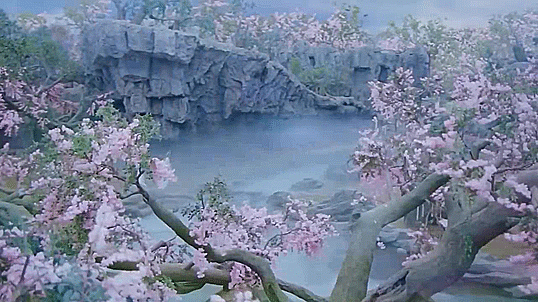
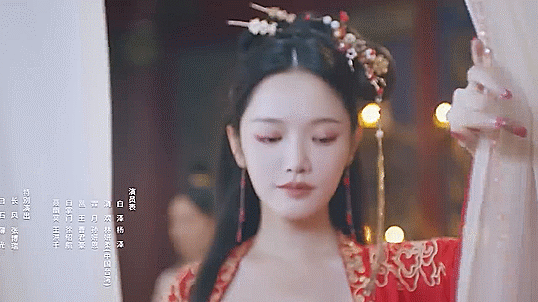
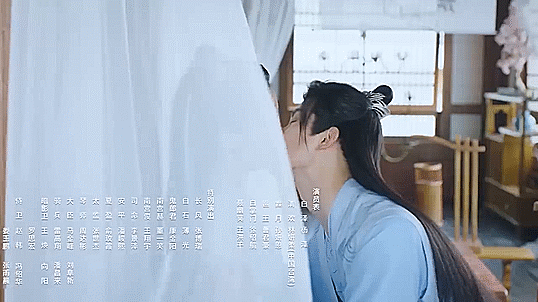
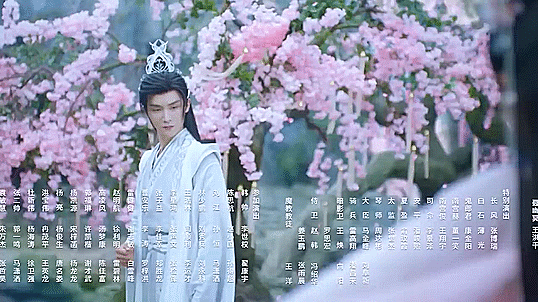

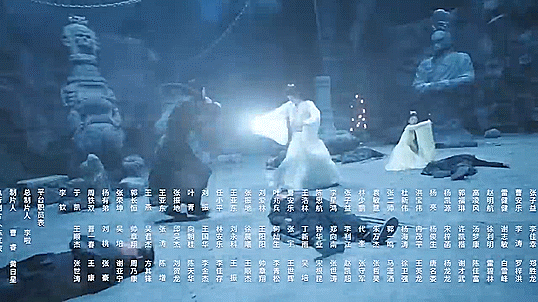

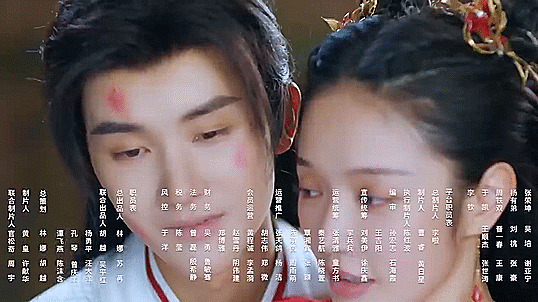
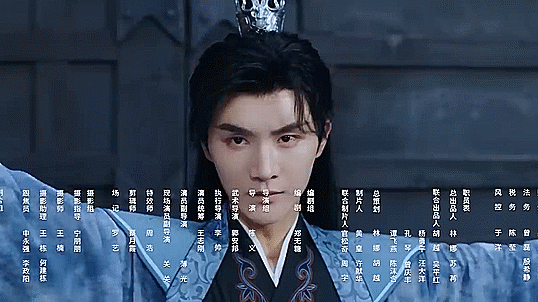
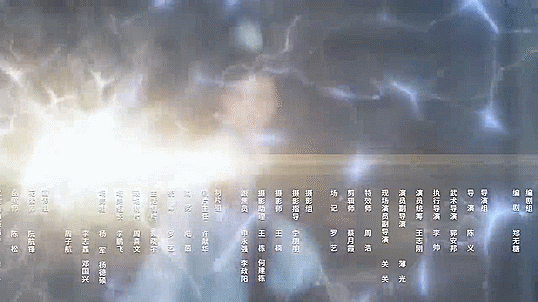
Cdrama: The Origin of Eternity (2022)
Gifs of Ending of cdrama “The Origin of Eternity”
[Multi-Sub] 《三生缘起是清欢/San Sheng Yuan Qi Shi Qing Huan 》 01: #杨泽#林妍柔#曹君豪#孙妍恩)
Watch this video on Youtube: https://www.youtube.com/watch?v=FIgHfYxjZRA

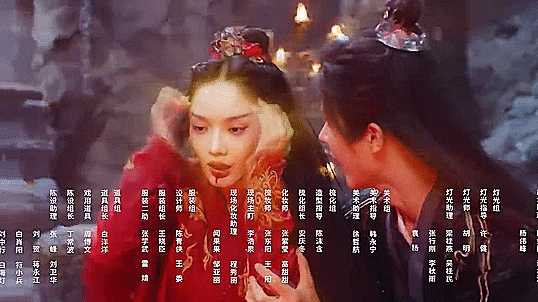
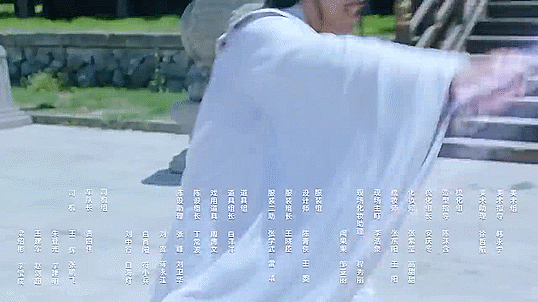
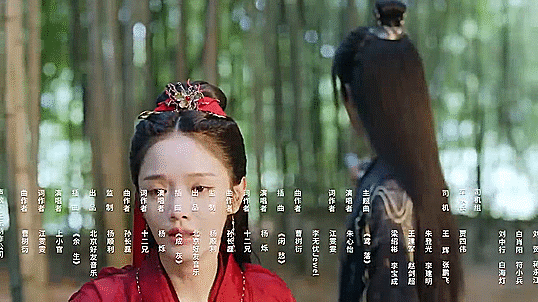

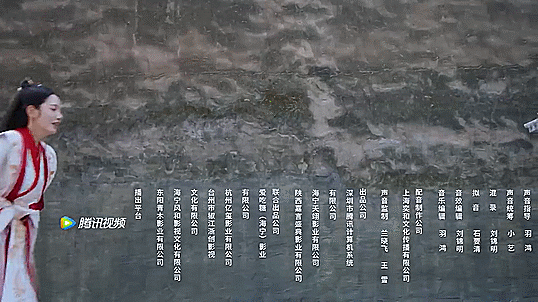
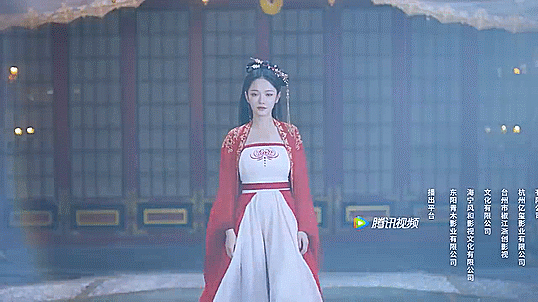
#The Origin of Eternity#三生缘起是清欢#三生緣起是清歡#San Sheng Yuan Qi Shi Qing Huan#2022#youtube#WeTV#TencentVideo#Web Serie#chinese drama#cdrama#episode 1#1st episode#Short Length Series#Yang Ze#Lin Yan Rou#Cao Jun Hao#Xu Shao Hang#Wang Hong Qian
4 notes
·
View notes
Photo
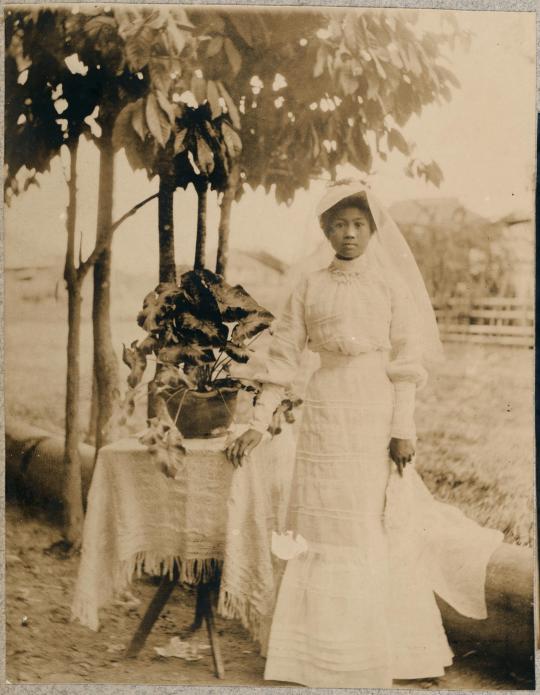


To Pick a Flower
2021, 17 min, color/B&W, HD
Exhibited as part of the group exhibition “Hold the Mirror up to His Gaze: the Early History of Photography in Taiwan (1869-1949)”
2021.03.25 - 08.01
Taipei National Center of Photography and Images
Curated by Hongjohn Lin
Organized by National Taiwan Museum of Fine Arts, National Center of Photography and Images
Exhibiting Artist(s):
Photographer (Photo Studio):
St. Julian Hugh Edwards
John Thomosn
Lai Afong
George Uvedale Price
Endō Photo Studios
Zhudong Photo Studio
Shih Chiang (Erwo Photo Studio)
Lin Cao (Lin Photo Studio)
Chang Chao-Mu (Chang Photo Studio)
Wu Jin-Miao (Jin-Miao Photo Studio)
Lin Shou-Yi (Lin Photo Studio)
Wu Chi-Jhang (Mingliang Photo Studio)
Huang Yu-Jhu (Guanghua Photo Studio)
Long Chin-San
Peng Ruei-Lin (Apollo Photo Studio)
Deng Nan-Guang
Chang Tsai
Lee Ming-Tiao
Artistic Research:
Shireen SENO
Gao Jun-Honn
Chang Chien-Chi
Tsao Liang-Pin
Liang Ting-Yu
ZHUANG Wu-Bin
Chen Fei-hao
Chen Chin-pao
Nowhere Island Journal
To Pick a Flower
My mother used to tell me that our dining table was as old as I am. I wonder how old the tree was when it was cut down and turned into our table. I am fascinated by such processes of transmutation from the natural world to the human realm, and how a tree takes on new lives long after it has been cut down.
I would like to propose a video essay incorporating archival photographs from the American Colonial Era in the Philippines (1898–1946), exploring the sticky relationship between humans and nature and its entanglements with empire.
During my research, I came across a photograph of a young bride posing for an outdoor portrait, but in place of a groom there was a potted plant. An air of uncertainty abounds. Could it be that her groom is running late or has failed to show up? Is she hesitant to enter into marriage with him, or at all? Or perhaps she is just so uncomfortable and just can’t wait for this photograph to be taken? I imagine it was very hot at the time, and here she is under the sun in a heavy, tight-waisted wedding dress.
Later on, I found a similar photograph of another woman posing outdoors next to a potted plant. I’m not sure if she is a bride, but she is wearing formal attire. This time, the woman is not looking at the camera. She is slightly turned to the side, and her gaze is downward to the dirt road at her feet. Her face is not very clear, but she appears to be in some discomfort. Her left-hand rests on the leaves of the small potted plant at her side, which is almost like a pet or a companion, definitely an object of comfort to her.
There’s a tension to image-making that makes it so interesting—to keep moments of life with you, but in doing so, perhaps you also take something away from them. As a friend once said to me, it’s kind of like picking a flower: it’s beautiful and you want to take it, but you’re killing it at the same time. The camera enables us to straddle that fine line between life and death.
Taking plants and trees as a starting point, this work aims to explore the roots and growth of photography and capitalism in the Philippines.
Exhibition overview
“Hold the Mirror up to His Gaze: the Early History of Photography in Taiwan (1869-1949)” examines the power relations of photographic techniques, colonial experience, and modernity. It explores the context of photography prior to the middle of the 20th century in Taiwan. The exhibition features 600 precious images from the National Center of Photography and Images, also combining nine different artistic research projects, to act as a supplement or something like a footnote to the content. This acts serve as supplements to the exhibited photographs. In terms of display, it is presented in the form of Aby Warburg's Atlas Mnemosyne. Through the juxtaposition of montages, the state of high-density compression of a century’s Taiwanese photography is presented. The highly compressed diachronic structure attempts to emerge the possibility of the "hauntology" of the image. This allows us to reevaluate artistic techniques in terms of their politics, culture, and social history in the global scale. Both on implicit and explicit, a glimpse for the image of Taiwan appears in form of writings of light.
“Hold the Mirror Up to His Gaze” has commissioned 9 artistic research projects to intervene in the exhibition, where they act as supplements. These supplements function like footnotes, branching out as addenda to the exhibition. The nature of art research is its non-replicability. It must emphasize the integration of exhibition, research, and heuristic processes, in addition to the epistemology that is born within. Each invited artist has proposed a specific theme by which to intervene into the exhibition and form open-ended discourses.
More:
https://ncpiexhibition.ntmofa.gov.tw/en/Exhibition/SubtopicDetail/21040211465485203?expoId=21011911215622632
7 notes
·
View notes
Note
Mousie do you have a favorite villain? I really liked the main villain from legend of fuyao he was really extra from what I remembered.
If you mean a bona fide “nah doesn’t get redeemed/explained away” villain? Yes.
I looooove the Dad in Fuyao, he was so delightfully evil, so dedicated to wrecking his unfortunate son/nephew (who was a good kid), it was delicious.
I am fond of Papa Wang in Monarch Industry because that man has FLAIR.
I am very fond of the terrifying, mesmerizing Bi Zhong Liang in Sparrow.
If we are going to go for tragic, nothing pings more for me than Yuan Hong as Yang Kang in Legend of Condor Heroes 2008 - he starts genuinely heroic and goes through seventeen kinds of hell and slowly becomes an antihero and then a villain but even when I hated him for the hell he put Hu Ge’s Guo Jing through, I could still pity him and I loved the way he worshipped the ground Liu Shi Shi’s Mu Nianci walked on. And then he ultimately finds redemption only...
My favorite villain in all of cdramas is Cao Cao as portrayed by Chen Jianbin in Three Kingdoms 2010. He is both the villain and the protagonist. He’s a horrifying person but he is so magnetic, so smart, so larger than life, that I root for him the entire drama (the man kills one of my biggest OTPs ever and I still love him.)
Though depending on the definition of a villain - if we allow protagonist who goes from hero to antihero to villain back to painful repentance - then hands down my favorite villain of any gender in any drama is Chen Xing Xu’s Li Chengyin in Goodbye My Princess for reasons I’ve mentioned in too many GMP posts. I love him, loathe him, pity him, am repulsed by him and root for him all at once. It’s a complicated broken character and a bravura performance.
If we are going to talk female villains, I am fond of the tragic villain heroine of Red Dust (played by Shu Qi), assassin trained by the bad guy, who she has to sleep with occasionally, but who finally wants more once she meets Wallace Huo’s scholar. She becomes a heroine and I love that.
If you want an unrepentant female villain, I am hella fond of the Empress in Tribes and Empires. Beautiful, intense, unhinged, trapped in a super toxic relationship with the Emperor she abused (and who is a monster himself) which gives me shudders.
My favorite female villain is probably Princess Royal played by Li Xiaoran in Joy of Life. She is gorgeous, smart, has a hell of unhealthy but scorching chemistry with Zhang Ruo Yun’s Fan Xian (her prospective son in law!) and is driven not by love or desire but by boredom, need for power, and a dark view of what is needed to survive. She is amazing.
(If Hao Yi Xing ever airs, and is halfway competently done, I am sure I will add Taxian Jun 1.0 to the list, but we shall see...)
3 notes
·
View notes
Text
Prince of Tennis (2019) Characters
This list was made based on the Chinese and Japanese Wikipedia entries for Prince of Tennis (2019), and the Dramawiki for the names of most of the actors. Please let me know if you spot any mistakes/ have any more to add!
Legend: [CHN Character name] [Name in Chinese characters] (Actor): Original JPN Name
Names with readings I'm not sure of are in italics
Yu Qing 育青 / Seishun Academy
Lu Xia 路夏 (Peng Yu Chang): Echizen Ryoma
Mu Siyang 穆司陽 (Xie Bin Bin): Tezuka Kunimitsu
Qiao Chen 喬晨 (Dong Li): Momoshiro Takeshi
Chi Dayong 池大勇 (Zhu Zhi Ling): Oishi Shuichiro
Zhuo Zhi 卓治 (Zhang Yi Jie): Fuji Syusuke
Tang Jiale 唐佳樂 (Xu Ke): Kikumaru Eiji
Yan Zhiming 嚴智明 (Li He): Inui Sadaharu
He Xinglong 賀興隆 (Fan Lin Feng): Kawamura Takashi
Zhang Baiyang 張百揚 (Wu Xu Dong): Kaidoh Kaoru
Qi Ying 齐瑛 (Song Yi Ren): Ryuzaki Sakuno
Peng Shang 彭湘 (Lu Jia): Osakada Tomoka
Huang Jing 黃靖 (Yu Kai Ning): Combination of Arai, Sasabe, etal
Ma Xiuwen 馬修文 (Zhang Ke Yuan)
A Mu 阿穆 (Li Jun Zheng)
Qi Na 齐娜 (He Jia Yi): Ryuzaki Sumire
Lu Xiangqian 路向前 (Wu Qi Jiang): Echizen Nanjiroh
Hao Dahe 郝大河 (Jin Yu Bo): Yamato Yudai
Yu Hang 育航 / Gyokurin
Bu Zhongchuan 钟歩川 (Jin Hao Chen): Fukawa Kimiyoshi
Wu Quan 吴泉 (Zhang Hang [YOUNG-G]): Izumi Tomoya
Yu Feng 玉峰 / Fudoumine:
Xu Ziping 徐子平 (Chen Shang Ze): Tachibana Kippei
Yan Jiang 燕江 (Wang Yong Feng): Sakurai Masaya
Shi Tienan 旋铁男 (Yang Chen Yi): Ishida Tetsu
Sima Yiwu 司马亦武 (Kong Chui Nan): Ibu Shinji
Shen Weiming 申伟明 (Liu Cheng Lin): Kamio Akira
Chen Desen 陈德森 (Gu Yu): Mori Tatsunori
Wei Kefei 韦克飞 (Ming Peng): Uchimura Kyosuke
Xu Xingzi 徐杏子 (Sun Jia Yu): Tachibana An
Xing Yao 星耀 / Hyotei Academy
Ji Jingwu 纪景梧 (Ren Yan Kai): Atobe Keigo
Hua Chonghong 华崇宏 (Yu An): Kabaji Munehiro
Hu Liangliang 胡亮亮 (Yang Ze): Shishido Ryo
Song Ci 宋慈 (Shi Zi Xun): Akutagawa Jiroh
You Shixing 游世星 (Fan Xiao Dong): Oshitari Yuushi
Yue Yang 岳阳 (Gao Xin): Mukahi Gakuto
Ji Nuo 吉诺 (Jiang Xin Qi): Hiyoshi Wakashi
Feng Zhiyuan 冯志远 (Jin Zhong Xi): Ootori Choutaro
Coach Fu 付教錬 (Tian Jia Da): Sakaki Tarou
No. 3 (Shisan) High School 市三 / Yamabuki
Ya Jiuxin 亚久辛 (Wang Yan Yang): Akutsu Jin
Shen Qianshi 沈千石 (Lou Ming): Sengoku Kiyosumi
Nan Jianzhi 南建知 (Liu Yu Feng): Minami Kentarou
Tan Yitai 谭一泰 (Huang Xing Yuan): Dan Taichi
Fang Yadong 方亚东 (Peng Gang): Higashikata Masami
Ma Lintao 马林涛 (Zhang Yuan Kun): Muramachi Tohji
Coach Tian 田教練 (Hong Wei): Banda Mikiya
Chen Huijing 陳慧敬 (Yang Cai Ying): Akutsu Sayuri
Guo Zi 國子 / St. Rudolph
Zhuo Yu 卓宇 (Zhao Zi Qi): Fuji Yuuta
Guan Yue 关岳 (Lan Bo): Mizuki Hajime
Qiao Ze 乔泽 (Liu Ming Kai): Akazawa Yoshiro
Ling Tian 梁田 (Jerry Chang): Kaneda Ichiro
Liu Zecheng 刘泽成 (Tang Xiang En): Yanagisawa Shinya
Qin Yifei 秦一婓 (Deng Zhi Yuan): Kisarazu Atsushi
No. 6 (Di Liu) 第六 / Rokkaku
Kui Jian 奎建 (Lei Ming): Aoi Kentaro
Yu Zifeng 余子风 (Fu Yan Zhang): Kurobane Harukaze
Lin Xiyan 林希彦 (Yao Jun Zhe): Itsuki Marehiko
Tian Ye 田野 (Wang Hao Yu): Amane Hikaru
Zuo Xiaohu 左小虎 (Li Zheng Jun): Saeki Kojiro
Mu Jinliang 穆金亮 (Zhai Xu): Kisarazu Ryo
Liu Muyun/Mr. Six 劉牧雲/六爷 (Hou Tong Jiang): Oji
Hai Guang 海广 / Rikkaidai
Bai Shiting 白市廷 (Ren Yun Jie): Yukimura Seiichi
Tian Zilong 田子龙 (Xiang Yun Long): Sanada Genichiro
Ke Jie 柯杰 (Tan Xu): Jackal Kuwahara
Liu Lian 柳濂 (Wang Yi Bo): Yanagi Renji
Jin Wentai 金文太 (Cao Jun Xiang): Marui Bunta
Yuan Chi 袁驰 (Shen Qi): Kirihara Akaya
Wang Yaren 王雅人 (Xu Rui Lin): Nioh Masaharu
Lu Sheng 吕胜 (Li Shu Ren): Yagyuu Hiroshi
Ying Cai 英才 / Ginka
Xiang Jingtian 向静天 (Chen Peng Wan Li): Fukushi Michiru
Chen Dahai 陈大海 (Ma Wenchao)
Lin Ye 林叶 (An Zi Yang)
Other Characters
Sha Sha 沙莎 (Liu Yong Xi): Shiba Saori
Li Na 李娜 (Li Na) [Bookstore owner]
Jiang 姜 (Jiang Shang): Tatsugoro [Racquet repair man]
*(2020.03.11) Fixed typo on Bai Shiting's actor name. Thanks to @tsunaminh for pointing it out!
*(2020.03.16) Fixed Ji Nuo's name! Thanks to @rlkkai for pointing it out!
*(2020.04.08) Fixed typo in Lu Xiangqian's name
#prince of tennis#prince of tennis 2019#match! tennis juniors#chinapuri 2019#fen dou ba shao nian#chinese prince of tennis
94 notes
·
View notes
Text
Lu Ji’s “Discourse on the Fall of Wu (Part 1)”
Lu Ji was the grandson of Lu Xun and the son of Lu Kang; he was noted as being a literary genius, along with his younger brother Lu Yun.
以孫氏在吳,而祖父世為將相,有大勳於江表,深慨孫皓舉而棄之,乃論權所以得,皓所以亡,又欲述其祖父功業,遂作《辯亡論》二篇。其上篇曰:昔漢氏失禦,奸臣竊命,禍基京畿,毒遍宇內,皇綱弛頓,王室遂卑。於是群雄蜂駭,義兵四合。吳武烈皇帝慷慨下國,電發荊南,權略紛紜,忠勇伯世,威棱則夷羿震盪,兵交則醜虜授馘,遂掃清宗祊,蒸禋皇祖。于時雲興之將帶州,猋起之師跨邑,哮闞之群風驅,熊羆之族霧合。雖兵以義動,同盟戮力,然皆苞藏禍心,阻兵怙亂,或師無謀律,喪威稔寇。忠規武節,未有如此其著者也。
Lu Ji considered how, during the reign of the Sun clan in Eastern Wu, his grandfather and father had served that state as generals and chief ministers and had performed great deeds on its behalf. He bitterly lamented his family's loss of status after Sun Hao came to power. Thus Lu Ji wrote an essay in two parts on the rise and fall of Eastern Wu, in which he extolled the deeds of Sun Quan (who had employed his grandfather Lu Xun) and castigated the errors of Sun Hao, as well as glorifying the achievements and the efforts of his father and grandfather. This essay was titled Thoughts on the Fall of Wu.
In the first part, he wrote, "Many years ago, the Han dynasty lost control of the realm, as a wicked subject (Dong Zhuo) grasped for power. The disaster reached even the capital region, the foundation of the state, while the poison spread all throughout the realm. The imperial laws were ignored with impunity, and the royal family was reduced to a pitiful state.
"Our Emperor Wulie (Sun Jian), who sympathized with the plight of the state, set out like a flash of lightning from the south of Jingzhou (at Changsha). In planning and strategy he was meticulous and thorough; in courage and loyalty he was an exemplar for the age. With a mere display of strength, the barbarians cowered in fear of him; at the first clash of arms, the despicable villains surrendered their heads. Thus he purged and swept clear the temples and shrines of the Han dynasty and offered prayers and sacrifices to the imperial ancestors.
"There were other men of fortune in those days, to be sure, who likewise called for uprisings on every side. Some of their hosts were like clouds gathered across several provinces, and others were like whirlwinds which engulfed entire cities; some conjured their swarms like billowing gales, and others came into being like so many bears and beasts. But though all these forces claimed to serve a righteous cause and swore to unite their efforts under one banner, yet there was evil within their hearts, for they sought only to take advantage of the chaos through the power of their armies. Indeed, some of these leaders had no greater design than to deepen the turmoil and seize whatever they could. Who among them was loyal or chaste, disciplined or dutiful? Not a one could measure up.
武烈既沒,長沙桓王逸才命世,弱冠秀髮,招攬遺老,與之述業。神兵東驅,奮寡犯眾,攻無堅城之將,戰無交鋒之虜。誅叛柔服,而江外底定;飭法修師,則威德翕赫。賓禮名賢,而張公為之雄;交禦豪俊,而周瑜為之傑。彼二君子皆弘敏而多奇,雅達而聰哲,故同方者以類附,等契者以氣集,江東蓋多士矣。將北伐諸華,誅鉏幹紀,旋皇輿於夷庚,反帝坐於紫闥,挾天子以令諸侯,清天步而歸舊物。戎車既次,群凶側目,大業未就,中世而殞。
"Though Emperor Wulie soon met his end, our King of Changsha (Sun Ce) proved himself to be an exceptional talent and a master of the age. His brilliance emerged even in the bloom of youth, and he beckoned forth the aged veterans of his father and set out on his enterprise with them. He charged to the east like some god of war, leading a mere handful to smash great multitudes. When he assaulted a city, no sturdy walls could stop him; when he faced a foe in the field, no fierce vanguard could withstand him. He punished the rebellious and soothed the submissive, thus the lands beyond the Yangzi became peaceful and tranquil; he observed the laws and enforced military restraint, thus he won acclaim both for his power and his virtue.
"The King was courteous and respectful to those of fine reputation and worthy conduct, and so Lord Zhang (Zhang Zhao) regarded him as a hero; he was welcoming and receptive to those of good families and great talents, and so Zhou Yu considered him to be a marvel. And were those two gentlemen not men of broad intellect and ingenious designs, refined character and profound thinking? Encouraged by their example, everyone within the same region attached themselves to the King's cause; he gained a host of accomplished servants like a gathering of the winds, for the Southland had many worthy fellows indeed.
"It was the King's desire to lead a northern campaign into the lands of the Hua (the Central Plains), to bring fire and sword to the evildoers and outlaws there. He aimed to place the imperial carriage in the hands of a loyal adherent and return the imperial throne to the Purple Palace (the Emperor's residence); with the Son of Heaven under his control, he could issue orders to the feudal lords, purify the path of Heaven, and restore things to their former state. In fact he went so far as to assemble his army and chariots and advance towards the north, and the villains were all gazing sideways towards him out of sheer terror at his approach. Yet before this grand cause could reach fruition, the King was cut down in his prime.
用集我大皇帝,以奇蹤襲逸軌,睿心因令圖,從政咨於故實,播憲稽乎遺風;而加之以篤敬,申之以節儉,疇諮俊茂,好謀善斷,束帛旅於丘園,旌命交乎塗巷。故豪彥尋聲而響臻,志士晞光而景騖,異人輻輳,猛士如林。於是張公為師傅;周瑜、陸公、魯肅、呂蒙之儔,入為腹心,出為股肱;甘甯、淩統、程普、賀齊、硃桓、硃然之徒奮其威,韓當、潘璋、黃蓋、蔣欽、周泰之屬宣其力;風雅則諸葛瑾、張承、步騭以名聲光國,政事則顧雍、潘浚、呂范、呂岱以器任幹職,奇偉則虞翻、陸績、張惇以風義舉政,奉使則趙咨、沈珩以敏達延譽,術數則吳范、趙達以禨祥協德;董襲、陳武殺身以衛主,駱統、劉基強諫以補過。謀無遺計,舉不失策。故遂割據山川,跨制荊、吳,而與天下爭衡矣。魏氏嘗藉戰勝之威,率百萬之師,浮鄧塞之舟,下漢陰之眾,羽楫萬計,龍躍順流,銳師千旅,武步原隰,謨臣盈室,武將連衡,喟然有吞江滸之志,壹宇宙之氣。而周瑜驅我偏師,黜之赤壁,喪旗亂轍,僅而獲免,收跡遠遁。漢王亦憑帝王之號,帥巴、漢之人,乘危騁變,結壘千里,志報關羽之敗,圖收湘西之地。而我陸公亦挫之西陵,覆師敗績,困而後濟,絕命永安。續以濡須之寇,臨川摧銳;蓬蘢之戰,孑輪不反。由是二邦之將,喪氣挫鋒,勢<血醜>財匱,而吳莞然坐乘其弊,故魏人請好,漢氏乞盟,遂躋天號,鼎峙而立。西界庸、益之郊,北裂淮、漢之涘,東苞百越之地,南括群蠻之表。於是講八代之禮,搜三王之樂,告類上帝,拱揖群後。武臣毅卒,循江而守;長棘勁鎩,望猋而奮。庶尹盡規于上,黎元展業於下,化協殊裔,風衍遐圻。乃俾一介行人,撫巡外域,巨象逸駿,擾於外閑,明珠瑋寶,耀於內府,珍瑰重跡而至,奇玩應響而赴;輶軒騁于南荒,沖輣息於朔野;黎庶免干戈之患,戎馬無晨服之虞,而帝業固矣。
"However, we were blessed with the presence of our Grand Emperor (Sun Quan). Through his unique talents, he picked up and followed the trail that had been lost; through his farsighted heart, he continued the lapsed mandate. He adopted wise policies to give substance to the government; he gathered sage ordinances to emulate the spirit of the ancients. And he enhanced these things through sincerity and respect and conveyed them through dutifulness and frugality. He was discerning in soliciting the advice of the wise and the talented, and he was an adept thinker and a decisive leader. He distributed silks and grains through the hills and parks, and he displayed his banners and his commands throughout the roads and streets.
"Thus the leaders and gentry of the region heard the call and came to join him, and the ambitious gentlemen of the land wept at his splendor and were glad to be his shadows. Outstanding figures surrounded him like spokes round a hub, stalwart warriors flanked him like a great forest. So it was that Lord Zhang (Zhang Zhao) became his teacher and tutor; so it was that Zhou Yu, Lord Lu (Lu Xun), Lu Su, and Lü Meng became his four champions, serving as his heart and lungs within and his arms and legs without. Such men as Gan Ning, Ling Tong, Cheng Pi, He Qi, Zhu Huan, and Zhu Ran gave him their courage; such figures as Han Dang, Pan Zhang, Huang Gai, Jiang Qin, and Zhou Tai lent him their strength. For culture and refinement, he had Zhuge Jin, Zhang Cheng, and Bu Zhi, whose reputation and influence glorified the state; for administrative skill, he had Gu Yong, Pan Jun, Lü Fan, and Lü Dai, who were credits to their ranks and masters of their roles; for scintillating talents, he had Yu Fan, Lu Xu, and Zhang Dun, whose lofty and righteous spirits uplifted the government. Zhao Zi and Chen Hang had he for envoys, and their nimble tongues and quick wit secured the state's reputation; Wu Fan and Zhao Da had he for mystics, whose divinations and omens ensured the state's blessings. Dong Xi and Chen Wu kept him from harm with vigorous efforts; Luo Tong and Liu Ji steered him from error with forceful remonstrations. In planning, nothing was overlooked or left out; in action, no aspect of strategy was forgotten. And it was for these reasons that the Grand Emperor was able to carve out and occupy the mountains and rivers of his domain, straddling and controlling the regions of Jing and Wu and contending for control of all the realm.
"The lord of Wei (Cao Cao), riding high on his string of victories, led forth an army of a million soldiers against us. He sailed a great fleet through the Deng Narrows and descended upon the south bank of the Han River with a massive host; his feathers and oars numbered in the tens of thousands as he swept down the rivers like a dragon. Fierce cavalry he had by the thousands, while his tiger infantry strode through the plains and marshes. His advisors and strategists filled entire rooms; his officers and generals rode in rows of war carts. He proclaimed his ambition to swallow up all the lands of the lakes and streams and unite the entire realm under his sole dominion. Yet Zhou Yu led forth a meager force to smite this foe at Chibi. The enemy was put to flight and thrown into total confusion; it was only by a narrow escape that he got away with his life, and he scampered far away and fled back where he came from.
"The King of Han (Liu Bei) too claimed the title of sovereign. At the head of an army of the men of Ba and Han, he courted danger and invited calamity, laying out his camps and ramparts across a distance of a thousand li. He sought to avenge the defeat of Guan Yu and reclaim the lands west of the Xiang River. But our Lord Lu (Lu Xun) gave him the same treatment, thrashing him at Xiling (Yiling); the King's army was broken and destroyed, only with great difficulty did he break free from our pursuit, and in the end he expired at Yong'an (Baidicheng).
"Though Wei sought to invade us at Ruxu, we stood firm upon the bank and crushed them; though they attacked us at Penglong, we fought them off and did not yield.
"Thus did we destroy the forces and shake the morale of these our two rivals; their blood and treasure were greatly spent, while Wu stood smug to take advantage of their weakness. So the people of Wei asked us for a peace agreement, and the leaders of Han begged us for an alliance. And by the time our lord had claimed the heavenly title, the realm had settled into a tripartite division.
"To the west we encroached upon the borders of Yong and Yi (Yizhou); to the north we occupied the lines of the rivers Huai and Han; to the east we conquered the lands of the Yue peoples; to the south we bought the Man tribes under our control. The Grand Emperor discussed the rites of the Eight Monarchs (the Five Emperors and Three Sovereigns) and sought out the music of the Three Founders (of Xia, Shang, and Zhou), and he announced his affairs to the Supreme Deity and paid his respects to the various nobles. Our martial servants and valiant soldiers stoutly guarded the Yangzi; with their long lances and strong spears, they zealously seized the spirit of the whirlwind. The subjects of the state observed full propriety above, and the common people practiced their livelihoods below; moral transformation spread to every corner, and good culture touched every place. Envoys and agents were sent out to comfort and inspect the furthest regions. Enormous elephants and incredible horses swarmed about in the outer stables; bright jewels and precious treasures glittered in the inner storehouses. Again and again, wondrous baubles were sent to us; time after time, strange trinkets arrived at our court. Carriages aplenty swiftly brought word from out of the southern wastes; convoys of carts quickly brought news from out of the northern wilds. The people were spared from the terrors of warfare, and the warhorses had no need for morning exercises. The imperial legacy was secure.
大皇既沒,幼主蒞朝,奸回肆虐。景皇聿興,虔修遺憲,政無大闕,守文之良主也。降及歸命之初,典刑未滅,故老猶存。大司馬陸公以文武熙朝,左丞相陸凱以謇諤盡規,而施績、範慎以威重顯,丁奉、鐘離斐以武毅稱,孟宗、丁固之徒為公卿,樓玄、賀邵之屬掌機事,元首雖病,股肱猶良。爰逮末葉,群公既喪,然後黔首有瓦解之患,皇家有土崩之釁,曆命應化而微,王師躡運而發,卒散于陳,眾奔於邑,城池無籓籬之固,山川無溝阜之勢,非有工輸雲梯之械,智伯灌激之害,楚子築室之圍,燕人濟西之隊,軍未浹辰而社稷夷矣。雖忠臣孤憤,烈士死節,將奚救哉!
"Once the Grand Emperor left us, the Young Lord (Sun Liang) sat the throne for a time, while miscreants flaunted their cruel and wicked power. After them came Emperor Jing (Sun Xiu), who brought the laws back into their proper form. He was devoted to and restored the old order of things, and he committed no great faults in his governance of the state. He was a good leader who maintained what was right. But next was the Marquis of Guiming (Sun Hao).
"At the beginning of the Marquis' reign, the laws and canons had not yet been dispensed with, and the veteran servants of the previous rulers were still in place. The Grand Marshal, Lord Lu (Lu Kang), did honor to the court with his civil talents and his martial prowess; the Prime Minister of the Left, Lu Kai, ensured integrity through his forthright and honest admonitions. There were Shi Ji and Fan Shen, conspicuous for their valor and gravity, and Ding Feng and Zhongli Fei, acclaimed for their might and resolve; there were people like Meng Zong and Ding Gu to act as great ministers and fellows like Lou Xuan and He Shao to handle the state's affairs. Though the head of the state was sick, still the limbs remained healthy and strong. Alas, in the end they were still only the branches and leaves of the state, and after their demise, Wu came to grief.
"It has been said that a state need not fear 'a calamity of falling tiles' (an external threat), but what it ought to fear is 'a disaster of a collapsing mound' (an internal weakness). Our people had been ready to combat any danger of 'falling tiles', but the imperial family fell prey to a 'collapsing mound'. By the time the government army (of Jin) had seized the momentum and set out to attack, the Mandate had already passed from us and the legitimacy of the ruler had diminished. Our soldiers scattered from their formations, and our people abandoned their cities; our walls and moats proved less useful than mere barricades and fences, and our mountains and rivers were no greater obstacles than little hills and ditches. No one was prepared to face 'the cloud ladders of Gong Shu' or endure 'the floodwaters of Zhi Yao'; there was never a need for the enemy to emulate the Viscount of Chu by 'building houses at the siege lines' or the generals of Yan by 'routing us west of Ji'. Our army resisted for not even a fortnight before the altars of state collapsed. And though there were some generals who were loyal to the last and planned never to yield, or others who would die rather than abandon their duty, how could this mere handful have saved the state alone?
夫曹、劉之將非一世所選,向時之師無曩日之眾,戰守之道抑有前符,險阻之利俄然未改,而成敗貿理,古今詭趣,何哉?彼此之化殊,授任之才異也。
"The generals of the armies of Cao Cao and Liu Bei were not inferior to those of the recent invasion, nor was the enemy strength of former times less than in the late campaign; the methods of how to attack and how to defend had not been altered since before, and the natural defenses and terrain of our state were no less perilous to the foe. Yet we prevailed then and faltered now, which goes against reason and makes a mockery of sense. Why did it happen? Because of the difference in character between the ruler then and the one now, the distinction in talent between that granter of offices and ours."
10 notes
·
View notes